Ranking Every NBA Team's Top 3 Players Most Likely to Be Traded
Ranking Every NBA Team's Top 3 Players Most Likely to Be Traded
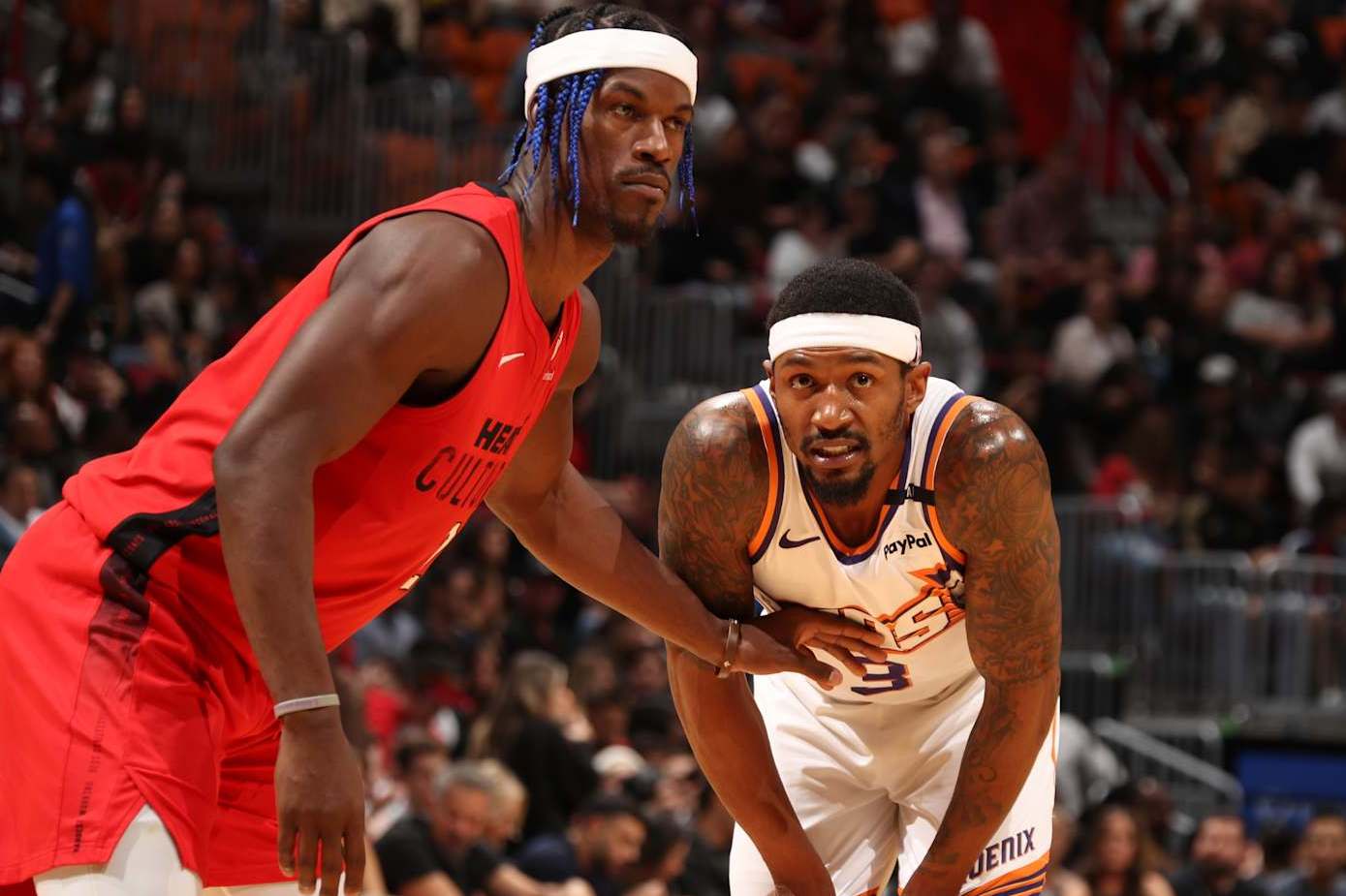
Happy week before the 2025 NBA trade deadline, everybody.
We will be commemorating the final-stretch "who is your favorite team most likely to deal?" speculation by, well, ranking who your team is most likely to deal.
Every squad will have three players on their he-might-be-gone big board. Inclusion is not tantamount to flat-out predictions. Yours truly is not positing that these players will definitely be traded. This is more of an "if your team does anything, it probably features someone here" situation.
Player contracts, team directions, cap sheets, organizational directions, rumored and implied availability (or lack thereof) and, er, trade demands are among the forces driving these selections and overall rankings.
Let us begin.
Atlanta Hawks
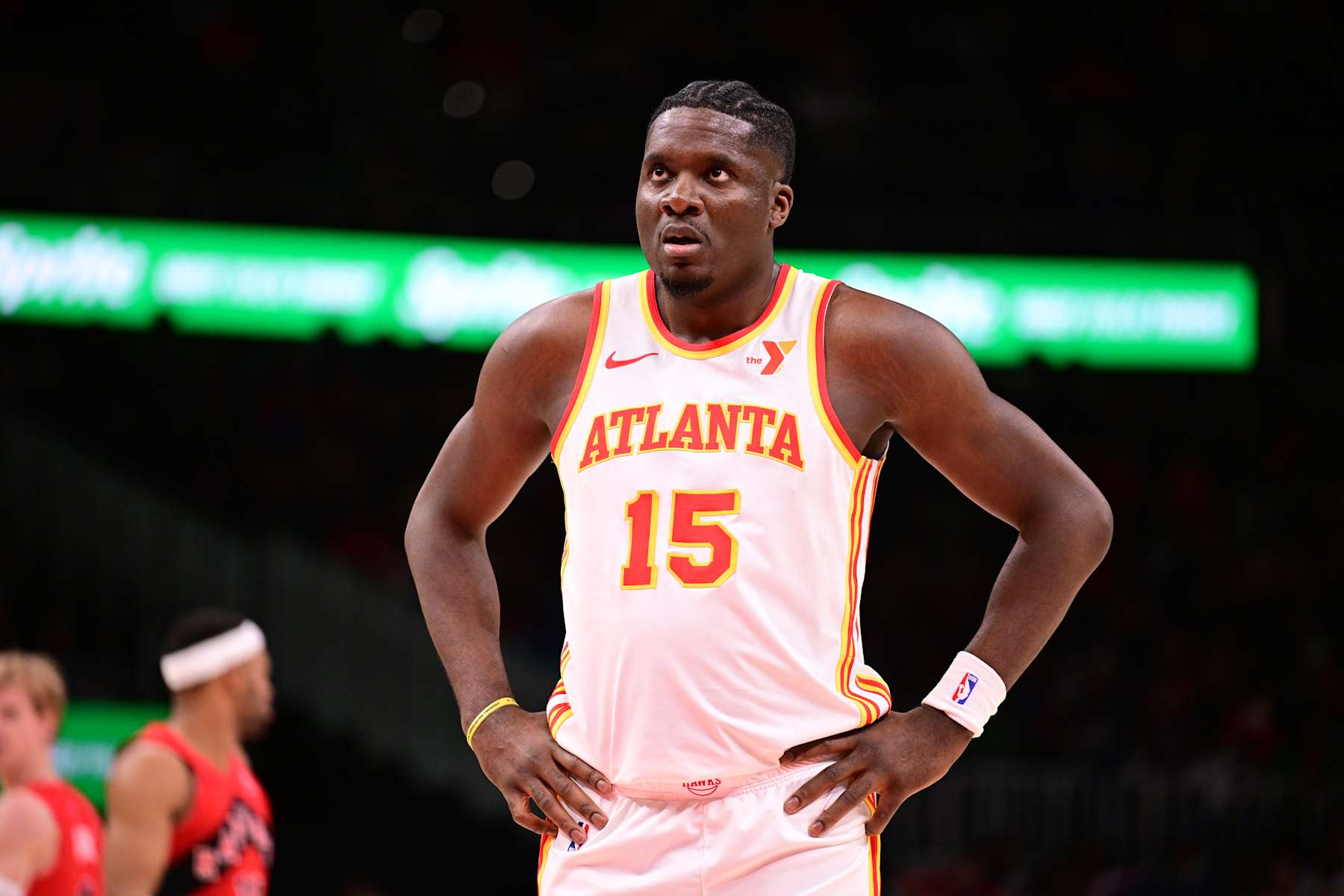
- Larry Nance Jr.
- Clint Capela
- Cody Zeller
Capitalizing on the value of expiring contracts and increasing wiggle room beneath the tax—$1.3 million currently—are the Atlanta Hawks' most probable aims.
Capela is an easy candidate, particularly now that he's coming off the bench. But his $22.3 million salary is on the steeper end and has finite value if Atlanta doesn't want to take on additional money this year or next.
Nance is a better No. 1 candidate. His expiring salary is roughly half of Capela's ($11.2 million), he will interest teams looking for a 4 and/or 5, and he's not a prominent part of the rotation even when healthy.
Cody Zeller isn't whetting another team's appetite on his own. But if the Hawks are looking to create a roster spot in advance of the buyout market, his $3.5 million salary (and non-guaranteed future years) should require only a mini-sweetener to jettison.
Boston Celtics
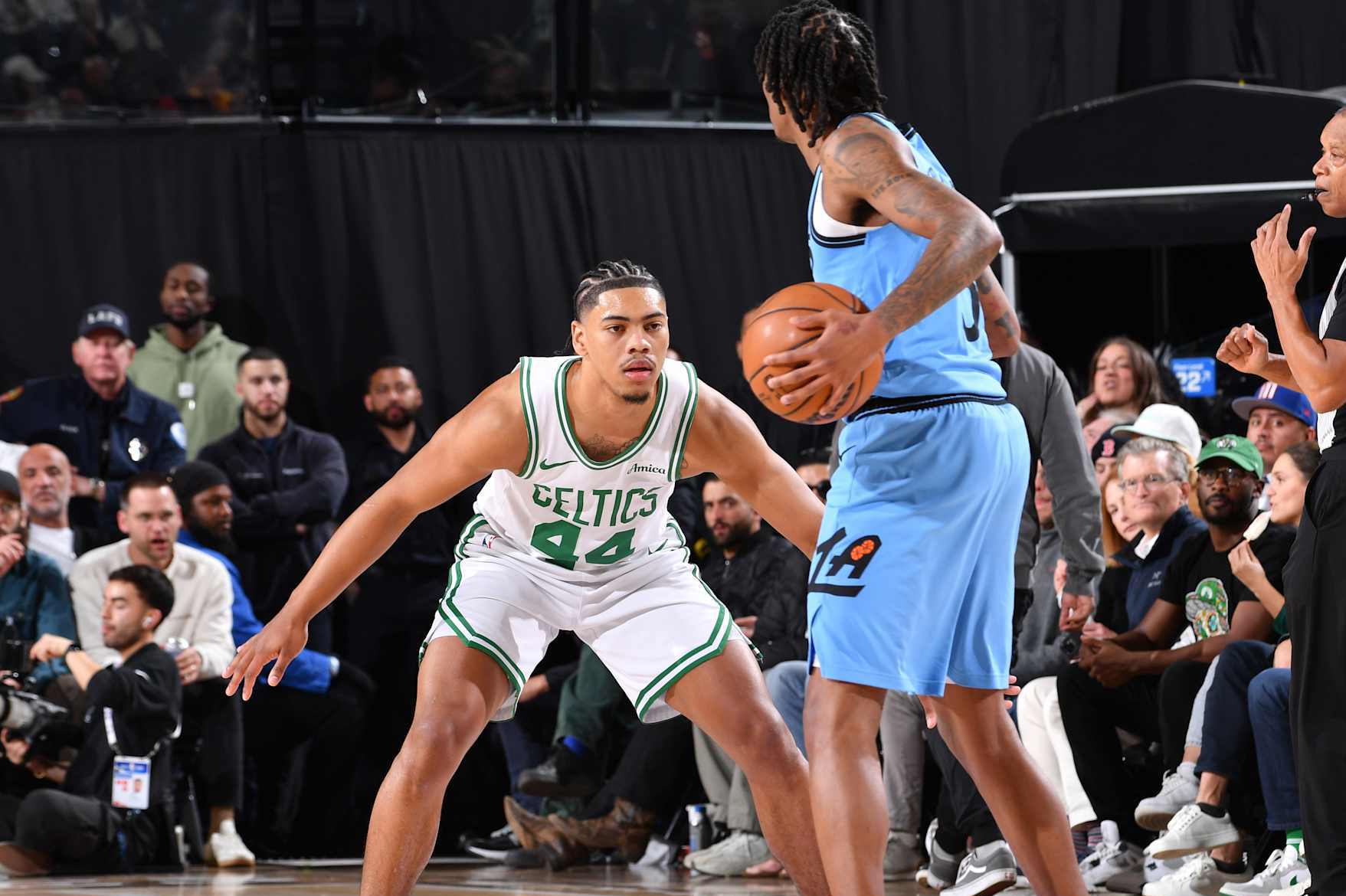
- Jaden Springer
- Xavier Tillman
- Neemias Queta
Nobody should be bracing for the Boston Celtics to set off fireworks at the deadline.
Despite some recent topsy-turviness, they are no worse than a top-three title contender, and the second apron makes it virtually impossible for them to pursue even modest splashes without offloading someone who's too important.
Trimming a top-four tax bill will be the primary goal. Lopping off Springer's $4 million expiring salary would save the Celtics more than $15 million. They have the sweeteners to find a taker, so it would be a genuine surprise if he remains on the roster past Feb. 6.
Moving Tillman or Queta saves a bunch of money as well, relative to minimum contracts. Both loom as contingencies if Springer isn't dealt. They could also be collateral damage as part of a more elaborate, ultra-aggressive attempt to skirt the second apron, into which Boston is $7.6 million.
Brooklyn Nets
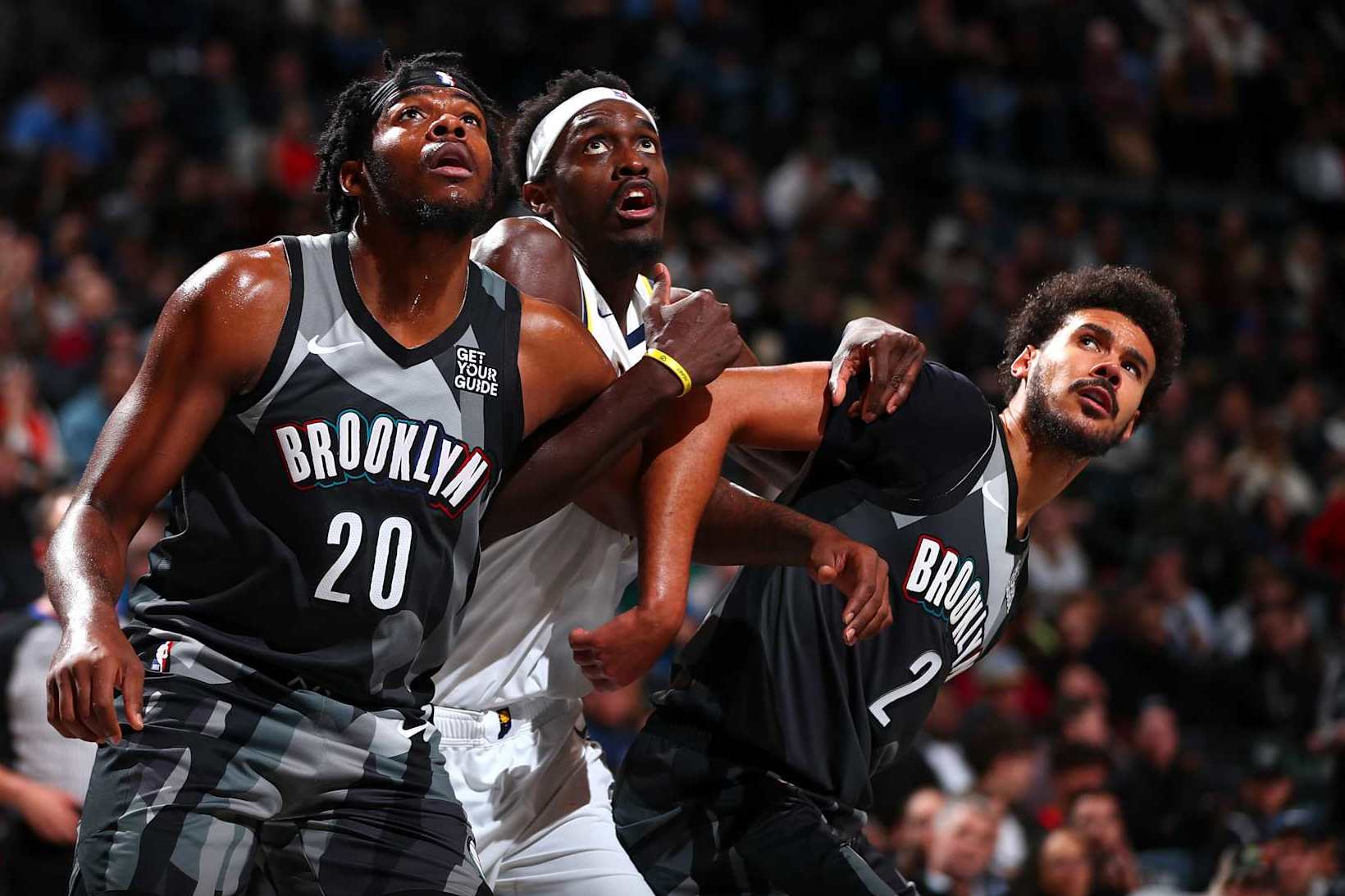
- Day'Ron Sharpe
- Cam Johnson
- Cam Thomas
Most of the Brooklyn Nets' business may already be done after shipping out Dorian Finney-Smith and Dennis Schröder. And though they are clear sellers, their position is somewhat complicated by sitting within $1 million of the luxury tax and the fact that they've (so far) only taken back expiring money in deals.
Johnson's name is bandied about more than anyone else on the roster, but the Nets are (finally) bad enough and have zero urgency to move him. He nevertheless belongs here. A less-than-frothy available-player landscape increases the chance some team caves to Brooklyn's high demands.
Sharpe seems like the most likely name to go. Plenty of squads are hunting for bigs, and he's a free agent after this season. That same logic drives Thomas' inclusion. The Nets have all the leverage since he'll be a restricted free agent, but if they're worried about bankrolling his next deal, it makes sense to gauge his market now.
Charlotte Hornets
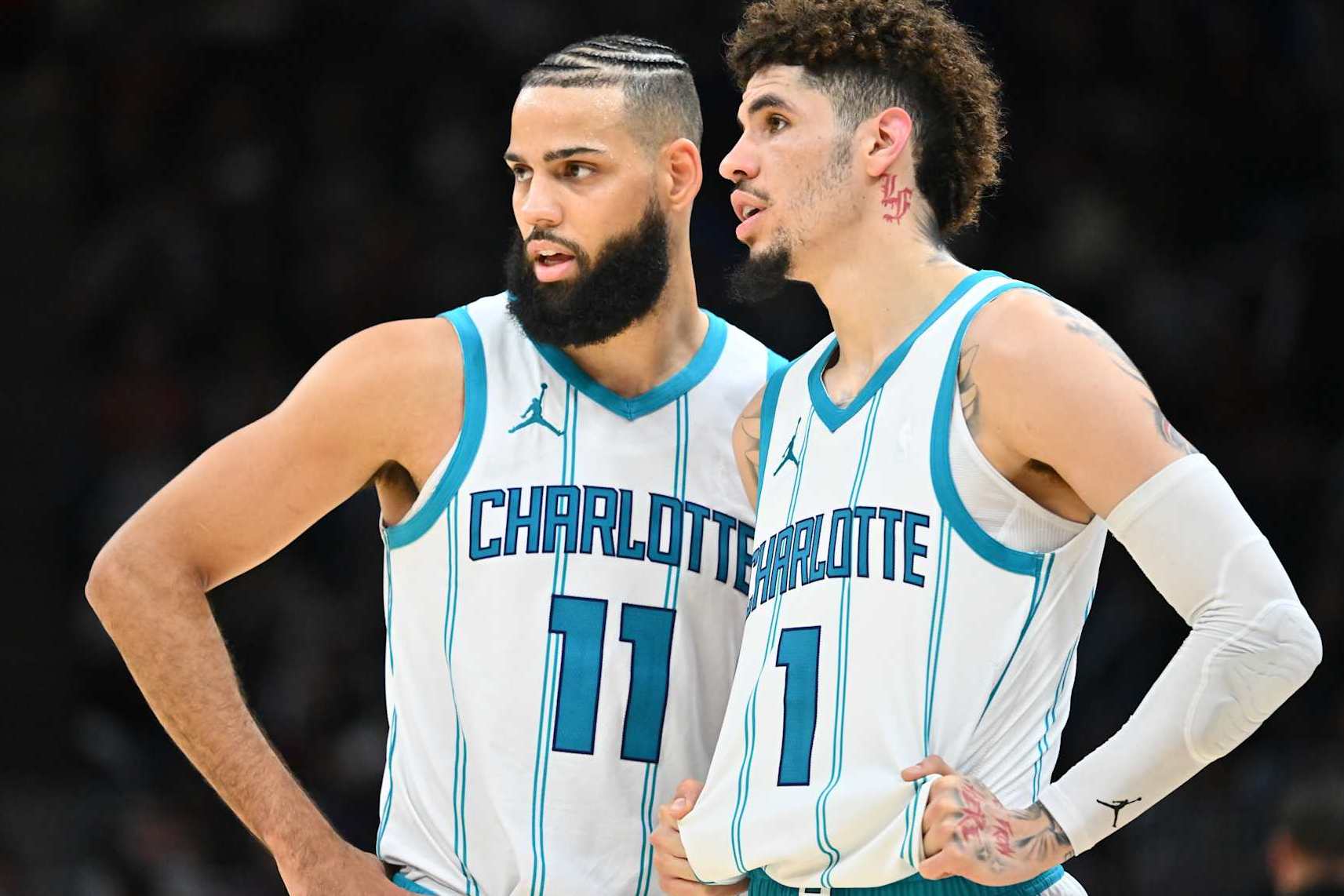
- Josh Okogie (cannot be aggregated)
- Vasilije Micić
- Cody Martin
This season is over for the Charlotte Hornets, and they know it. Nick Richards is already gone. More modest selloffs should follow.
Nobody expendable to the Hornets will fetch a ton. But Charlotte is almost $7.2 million below the tax, and the new salary-matching rules allow it to offer flexibility-strapped teams plenty of savings.
Take the recently acquired Okogie. The Hornets can ship out his $8.3 million salary and take back a little over $15 million without entering the tax. That difference—potentially coupled with Okogie's enduring defensive value—should be worth something.
Order these three players however you like. None of them have a guaranteed salary for next season or factor into the longer term. Martin, though, feels the least likely to be dealt, if only because the Hornets should prefer his defensive malleability and team control in 2025-26 to what is likely low-end second-round compensation.
Chicago Bulls
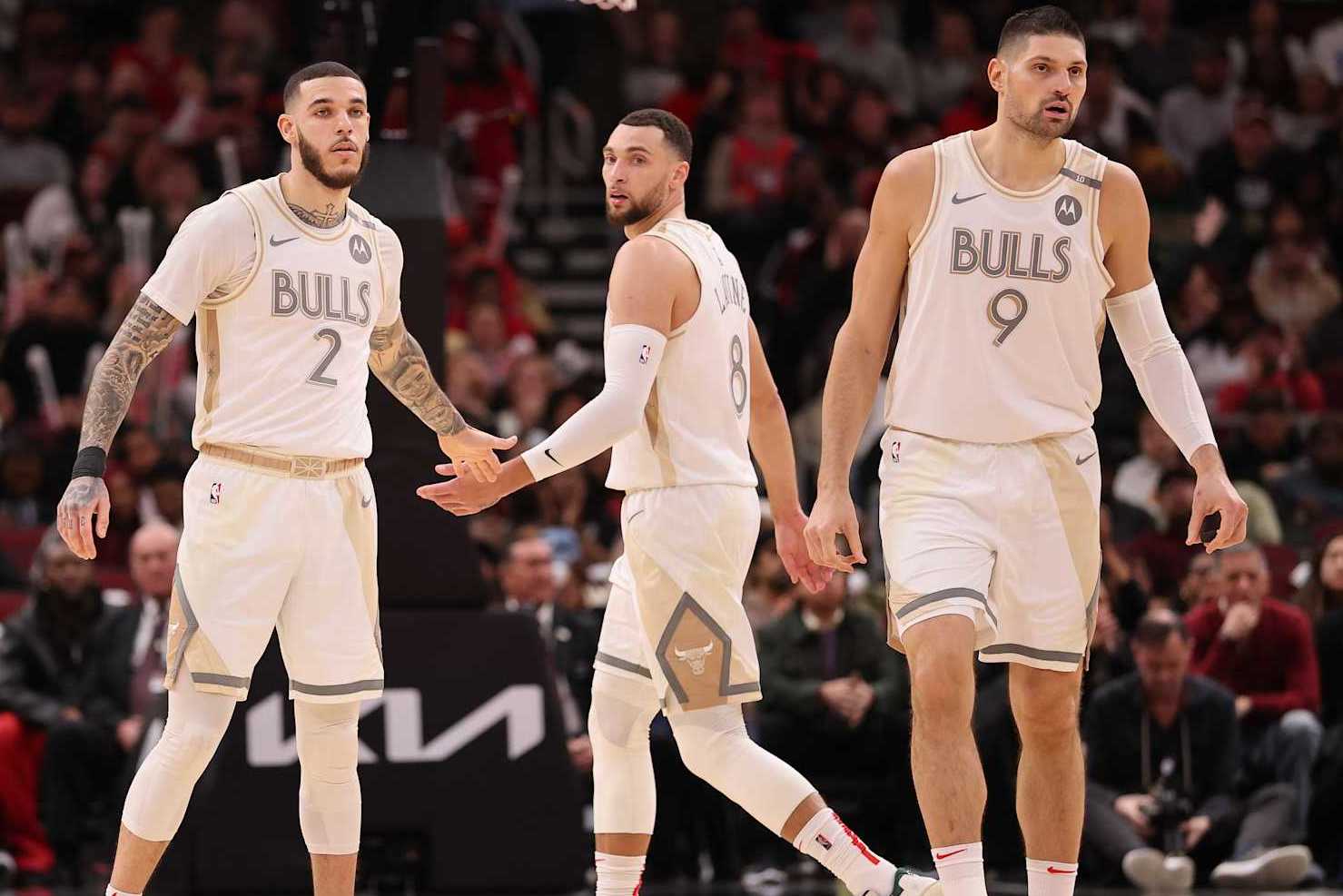
- Nikola Vučević
- Torrey Craig
- Zach LaVine
Sources told The Stein Line's Marc Stein that the Chicago Bulls are seeking a first-round pick for Vučević. If that asking price holds through the deadline, expect this team to inexplicably, deludedly sit entirely idle.
This ranking bets the Bulls lower their price and move him for second-round compensation. He gets the edge over LaVine because his price point—$20 million this year, $21.4 million next season—is more workable. Plus, LaVine may prefer to stay in Chicago, according to The Stein Line's Jake Fischer.
Craig gets a second-place nod since his minimum salary allows him to be sent anywhere without Chicago needing to take back anyone. His recent leg injury is worth monitoring, but the timetable for re-evaluation is one to two weeks and shouldn't scare asset-poor teams from taking a flier.
Lonzo Ball is another name to keep an eye on, though his $21.4 million salary is high for someone who shouldn't be playing a boatload of minutes, and we all know the Bulls don't have the foresight or stomach to use him as a vehicle for taking on long-term money.
Cleveland Cavaliers
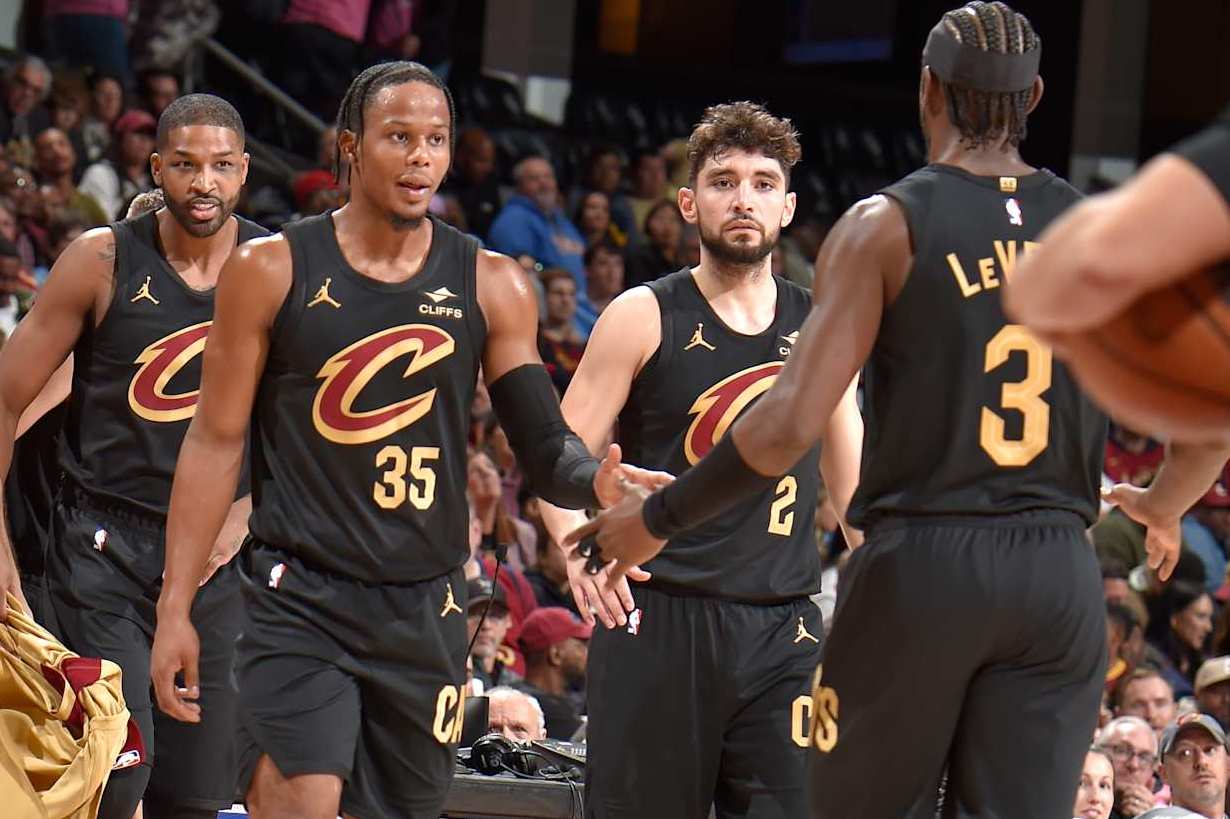
- Tristan Thompson
- Isaac Okoro
- Georges Niang
The Cleveland Cavaliers are reportedly willing to pay the luxury tax, according to HoopsHype's Michael Scotto. That feels like a lie.
At just under $2 million into the tax, with a core that's only getting more expensive, the Cavaliers are near-locks to sidestep it. Moving Thompson's minimum contract alone gets the job done, hence why he's atop the board.
Granted, Cleveland is good enough to be more aggressive if it pleases. That approach shifts focus to Okoro, Niang and Caris LeVert's expiring contract.
Rolling with LeVert might be the right answer, particularly as he's cooled off. But he is the most playoff proof of this trio. Okoro's role is less assured, even when healthy. That's enough to put him above Niang—who is both playing well and becomes more important if the Cavs move Thompson.
Dallas Mavericks
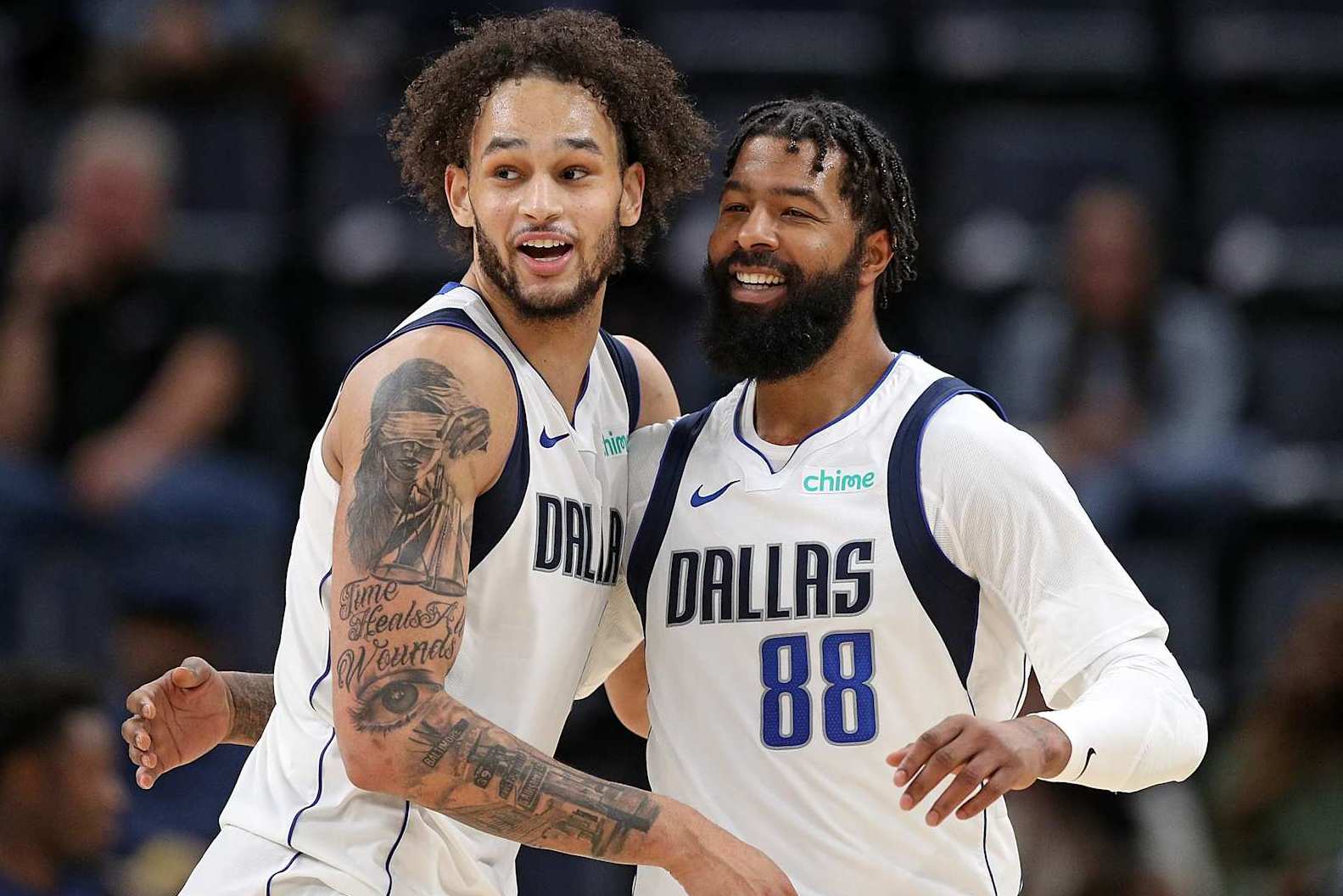
- Markieff Morris
- Maxi Kleber
- Olivier-Maxence Prosper
Injuries to Kleber and Dereck Lively II may compel the Dallas Mavericks to prowl the market for another big. They could also use another body on the wings. Then again, they're just $5.2 million into the tax. Will they consider trying to dip below it?
Morris' deal is the default No. 1 for a team with so many potential avenues. His minimum salary can be sent anywhere, and he may be worth rerouting if you want to create a roster spot.
Kleber's $11 million salary next season could be detrimental to talks, especially while he's injured. But attaching seconds to his salary is the move if Dallas wants to bag another big (Chris Boucher?) without increasing its payroll or nuking its core.
Prosper, meanwhile, is the type of finishing touch the Mavs use if they're taking a bigger swing and to elide first-round compensation. Powell's $4 million this season and next (player option) can displace the sophomore, but only if you think escaping the tax will be Dallas' primary objective.
Denver Nuggets
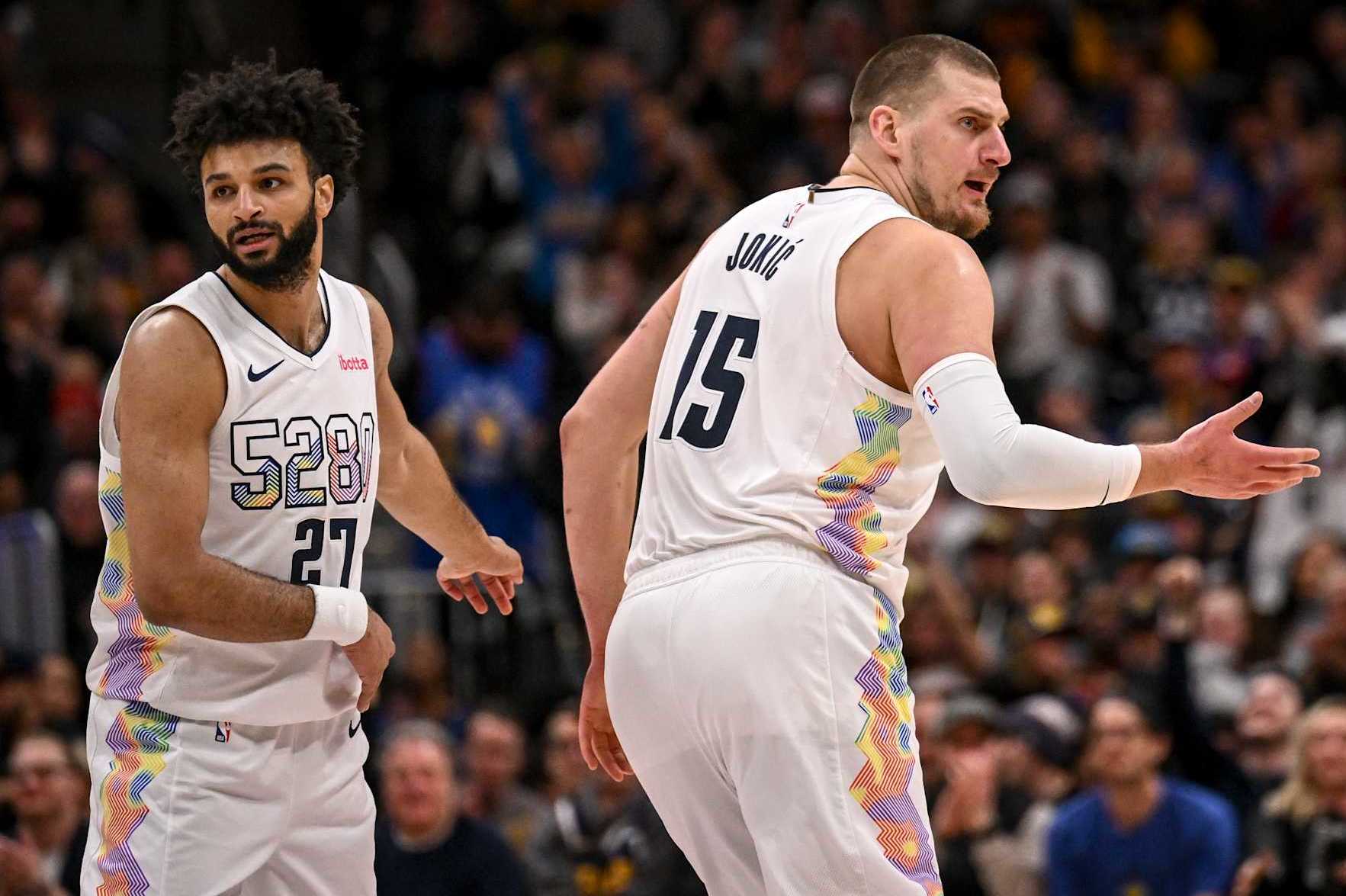
- Zeke Nnaji
- Dario Šarić
- Jalen Pickett
Half of the Denver Nuggets' Core Four is trade-ineligible—Jamal Murray and Aaron Gordon—and the team has rebounded enough from its rocky beginnings to obsess over the margins rather than its nucleus.
Not one of the players on this list has net-positive value. And Denver has zero second-round picks to use as throw-ins. First-round swaps in 2026, 2028 and 2030 as well as a (conditional) 2031 first-round pick are its best ammo.
Attaching some combination of those rights to Nnaji (three years, $23.2 million remaining) and Šarić ($4.9 million player option for 2025-26) is the Nuggets' most likely path to meaningful moves. Pickett is included because his minimum salary can be sent anywhere.
But if Denver is worried about the cost of retention for other youngsters and wants to preserve draft equity or build a glitzier package, Julian Strawther or Peyton Watson could amble their way into the No. 3 spot.
Detroit Pistons
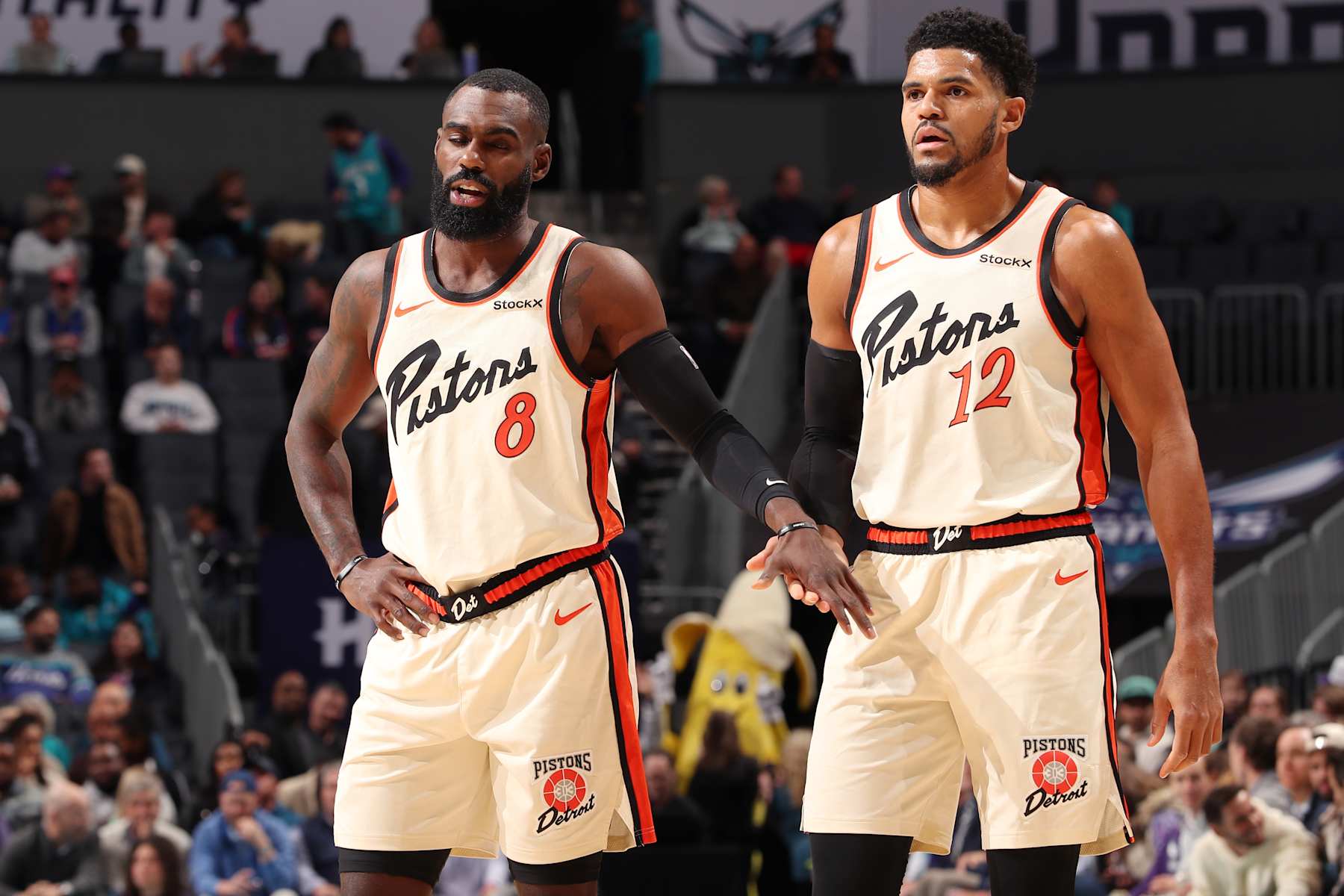
- Tim Hardaway Jr.
- Marcus Sasser
- Simone Fontecchio
Wielding around $14 million in cap space, the Detroit Pistons may wind up swinging a trade without moving any player. But their surprising trek up the Eastern Conference standings paves the way for them to think bigger without knifing into the future.
Hardaway is a mega-useful spacer and someone the Pistons may prefer to keep. Dangling his $16.2 million in talks also allows them to take back more than $30 million. Tobias Harris' price point functions in the same way, to an even greater degree, but his $26.6 million salary for next season will be a roadblock.
Sasser is the quintessential seldom-used player on his rookie scale who serves to offset (some) of Detroit's reluctance to deal away its own firsts. Fontecchio is not having the flashiest season, but his size and potential as a defense-stretcher fits anywhere. Most won't mind ponying up $8.3 million for him next year, and the Pistons seem more likely to part with him than Malik Beasley, one of their young wings or any of their core bigs.
Golden State Warriors
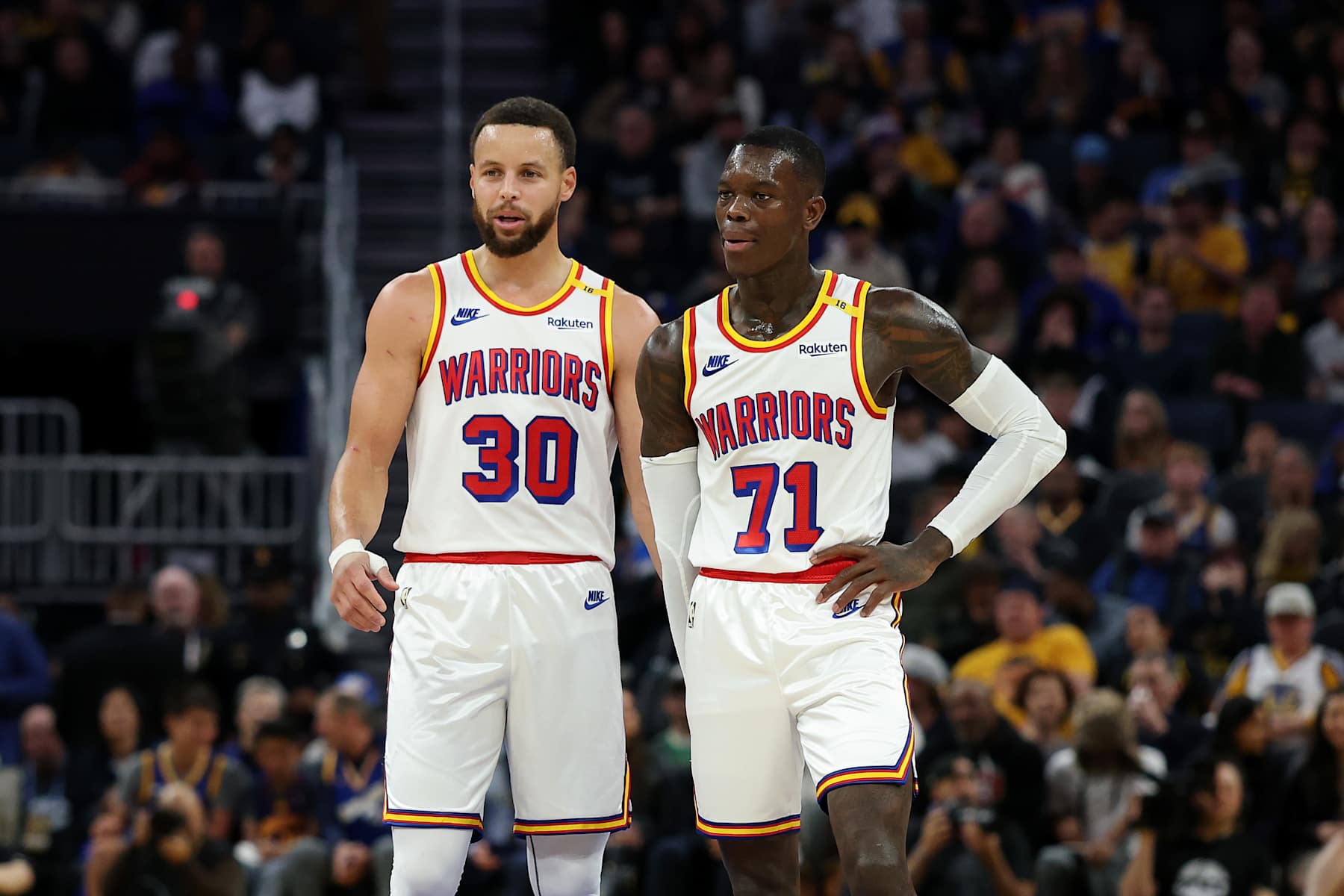
- Gary Payton II
- Kevon Looney
- Dennis Schröder
Andrew Wiggins belongs somewhere on this list if you believe the Golden State Warriors are a re-emerging favorite for Jimmy Butler or another big name. Kudos to anyone who does. But the franchise has acted contrarian to that belief.
Dodging the tax line—which they are $6 million above—seems more realistic. Using GP2's expiring money ($9.1 million) is the no-brainer. His role isn't especially big and has no clear path to expansion with the current roster construction unless Golden State unloads one of its primary wing defenders.
Looney can be viewed in the same light. He is now something like the Dubs' fourth big. Other teams might use him more, and his $8 million comes off the books this summer.
Schröder fits the mold for a variety of scenarios. He can still be aggregated just before the Feb. 6 deadline, his salary is large enough to help anchor a bigger swing, and unlike GP2, Looney or Kyle Anderson, he shouldn't require any accompanying sweeteners if Golden State gloms onto tax-ducking scenarios.
Houston Rockets
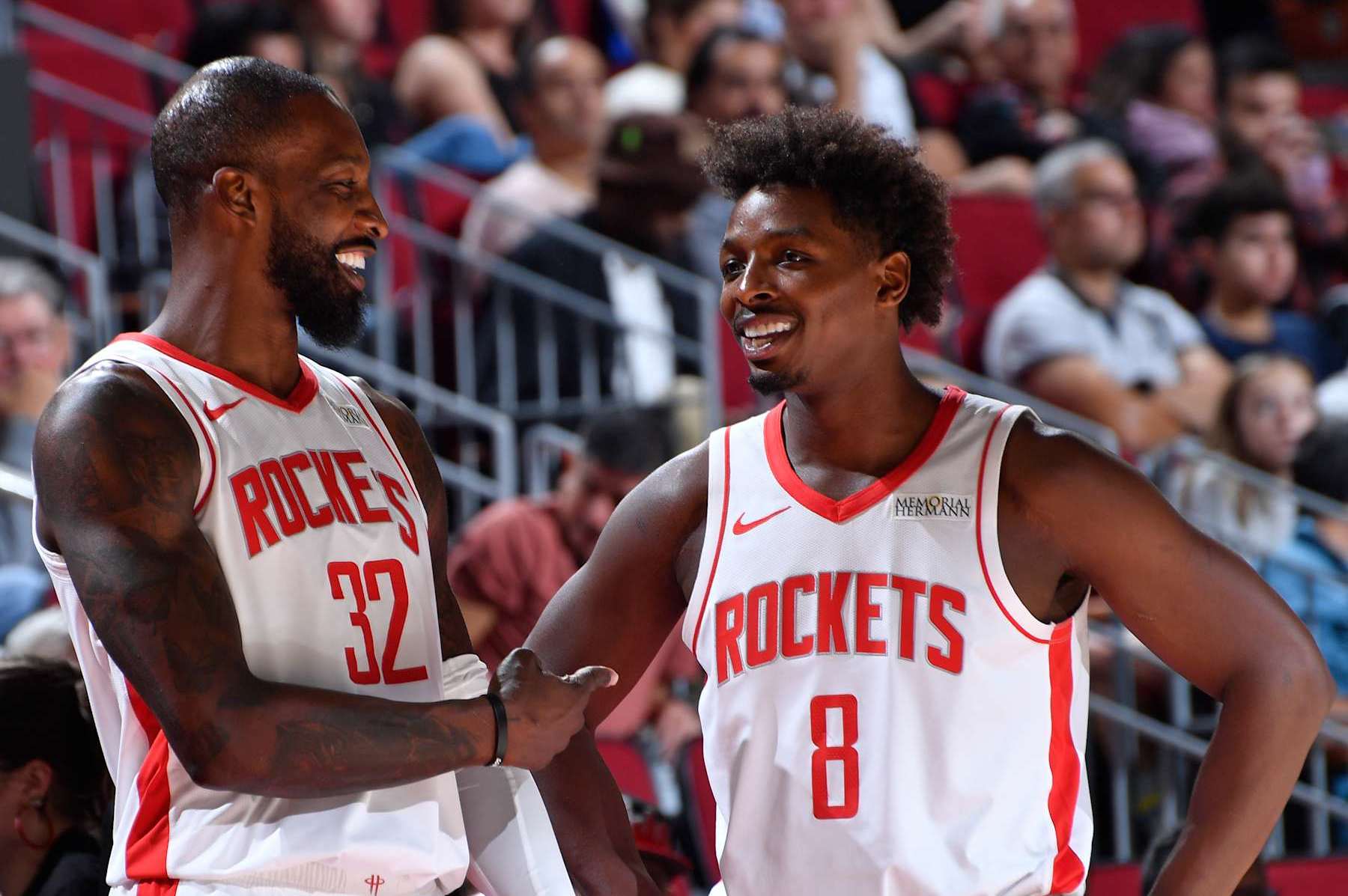
- Jae'Sean Tate
- Jock Landale
- Jeff Green
Recent victories over the Cleveland Cavaliers (twice) and Boston Celtics reinforce the Houston Rockets' lack of urgency entering the trade deadline. It'll be a big-time shock if they peddle any marquee prospects or names in chase of a blockbuster acquisition.
Step-laddering their way to another playmaker, shot-creator or floor-spacer using expendable deals is more their speed...if they do anything.
Tate has the most utility of this trio, but his $7.1 million salary is completely expiring. Houston may see more value in Landale's team control through next season. His $8 million salary for 2025-26 can be guaranteed and used as matching money in bigger offseason swings.
Subbing in Aaron Holiday (2025-26 team option) for Green is fair game. But the latter is clearly valued for his locker room presence, and the former has an implicit no-trade.
The Rockets also open more options if they use Green's expiring contract, which on its own can bring back a $17.1 million salary.
Indiana Pacers
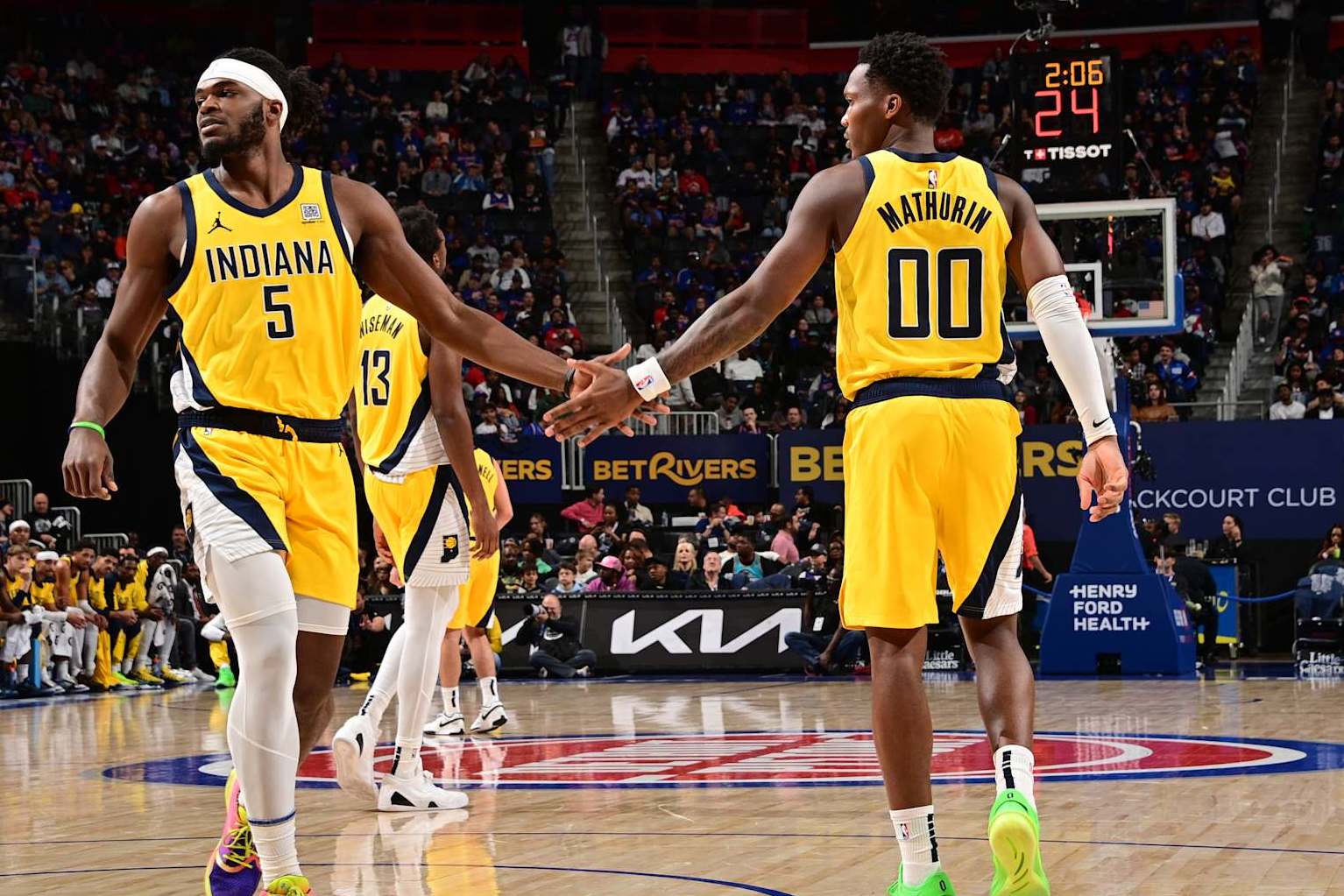
- Obi Toppin
- Bennedict Mathurin
- Jarace Walker
Between a top-two net rating since Jan. 1, sub-$200,000 in room beneath the tax, the recent return of Aaron Nesmith and a cap sheet absent throwaway mid-end salaries, the Indiana Pacers are increasingly likely to do absolutely nothing.
Pivoting to roster-spot upkeep and going with the injured James Wiseman and Isaiah Jackson or even James Johnson is in play. But that makes sense only if the Pacers will be players on the buyout market.
Anything Indiana can do will almost assuredly skew toward wholesale. Unless it's seeking draft equity or ready to move on from Myles Turner (nope), Toppin's $13 million salary looms as a critical matching tool.
From here, it's a matter of ranking Mathurin and Walker. The former is better and manning a larger role right now. But he's extension-eligible after this season and less likely to fit inside the Pacers' future salary structure, and longer-term minutes will open up for Walker if Toppin is on the move.
Los Angeles Clippers
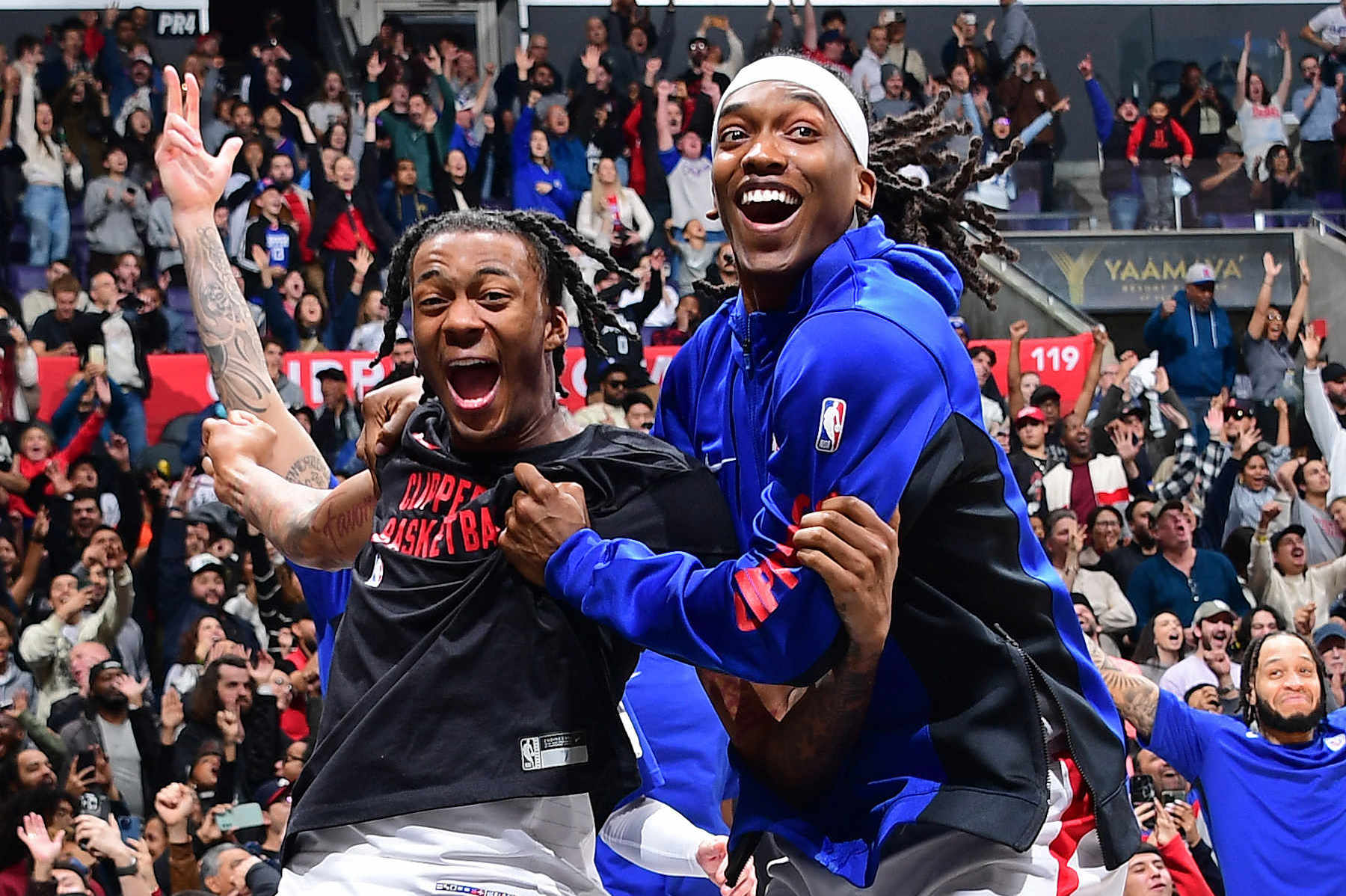
- P.J. Tucker
- Bones Hyland
- Terance Mann
Finding a taker for Tucker's $11.5 million expiring salary while shedding the $2.5 million needed to circumnavigate the luxury tax feels fait accompli for the Los Angeles Clippers. Is their available second-round stash—2030 and 2031—enough to do it? Taking the same approach with Hyland's $4.2 million expiring salary is next up (and eminently more doable) if it's not.
Mann slingshots up these rankings should the Clippers angle for a bigger swing. He is owed $11.4 million this season and set to begin a three-year, $47 million extension in 2025-26. Though his offensive utility is forever in question, he still has the chops to capably guard at the point of attack while taking on premier assignments.
Combining Mann and Tucker or Hyland could position the Clippers to upgrade an area of need (playmaker, shooting, reserve big) and slip beneath the tax line—without having to throw in any draft equity.
Los Angeles Lakers
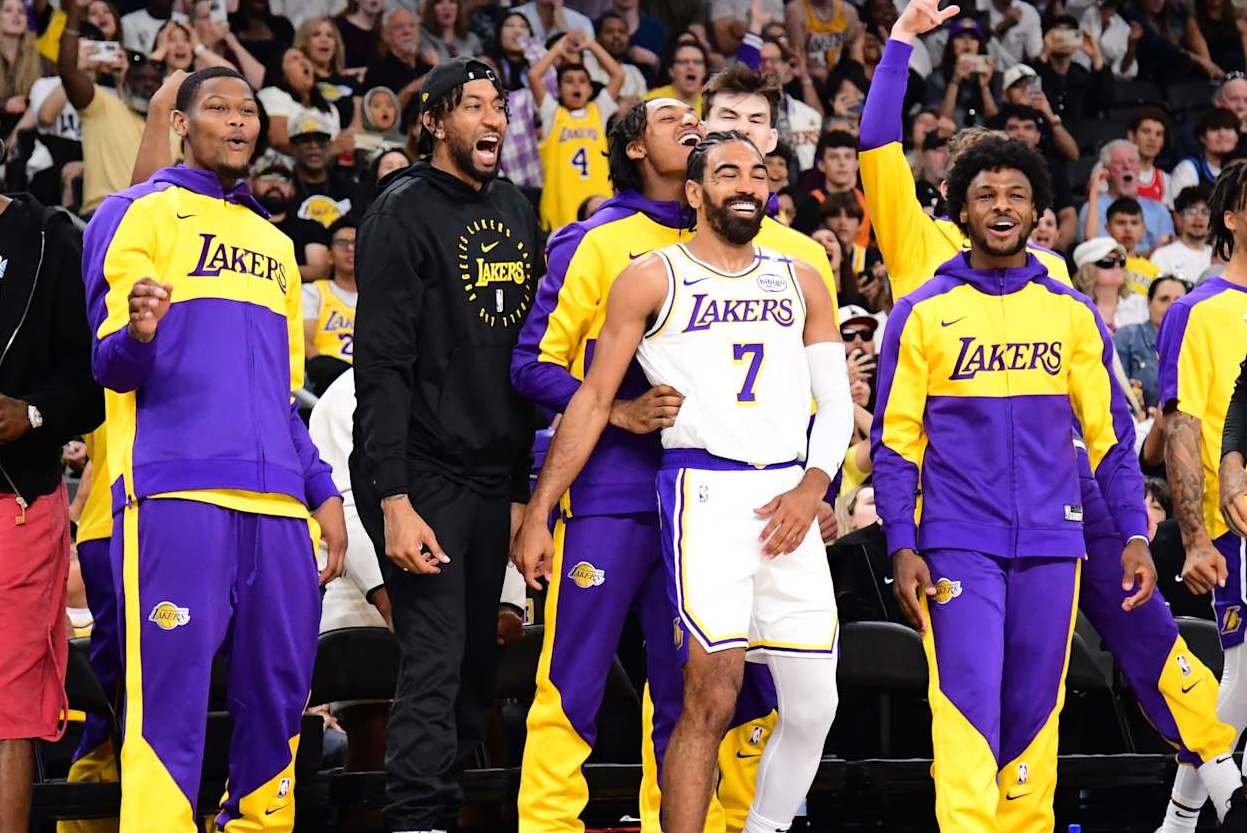
- Gabe Vincent
- Cam Reddish
- Jarred Vanderbilt
Finagling even medium-sized moves is difficult for the Los Angeles Lakers following the Dorian Finney-Smith trade. They only have two second-rounders at their disposal and are now out of meaningfully sized expiring salary.
Throwing first-round picks onto the table is always under consideration when you have LeBron James and Anthony Davis. But prospective trade partners will view taking on deals for Vincent (one year, $11.5 million) and Vanderbilt (three years, $37.3 million) as part of any value they're providing. That inherently diminishes the ceiling on any return.
Using one of them to increase depth at center or snag a low-end wing or shot-creator seems like the most plausible outcome. Vincent's deal is shorter, so he goes first.
Reddish edges Vanderbilt for the No. 2 slot. His minimum salary can be sent anywhere, making him a better candidate than Jalen Hood-Schifino, and the Lakers will assuredly want to create a roster spot if they're not doing anything of substance.
Memphis Grizzlies
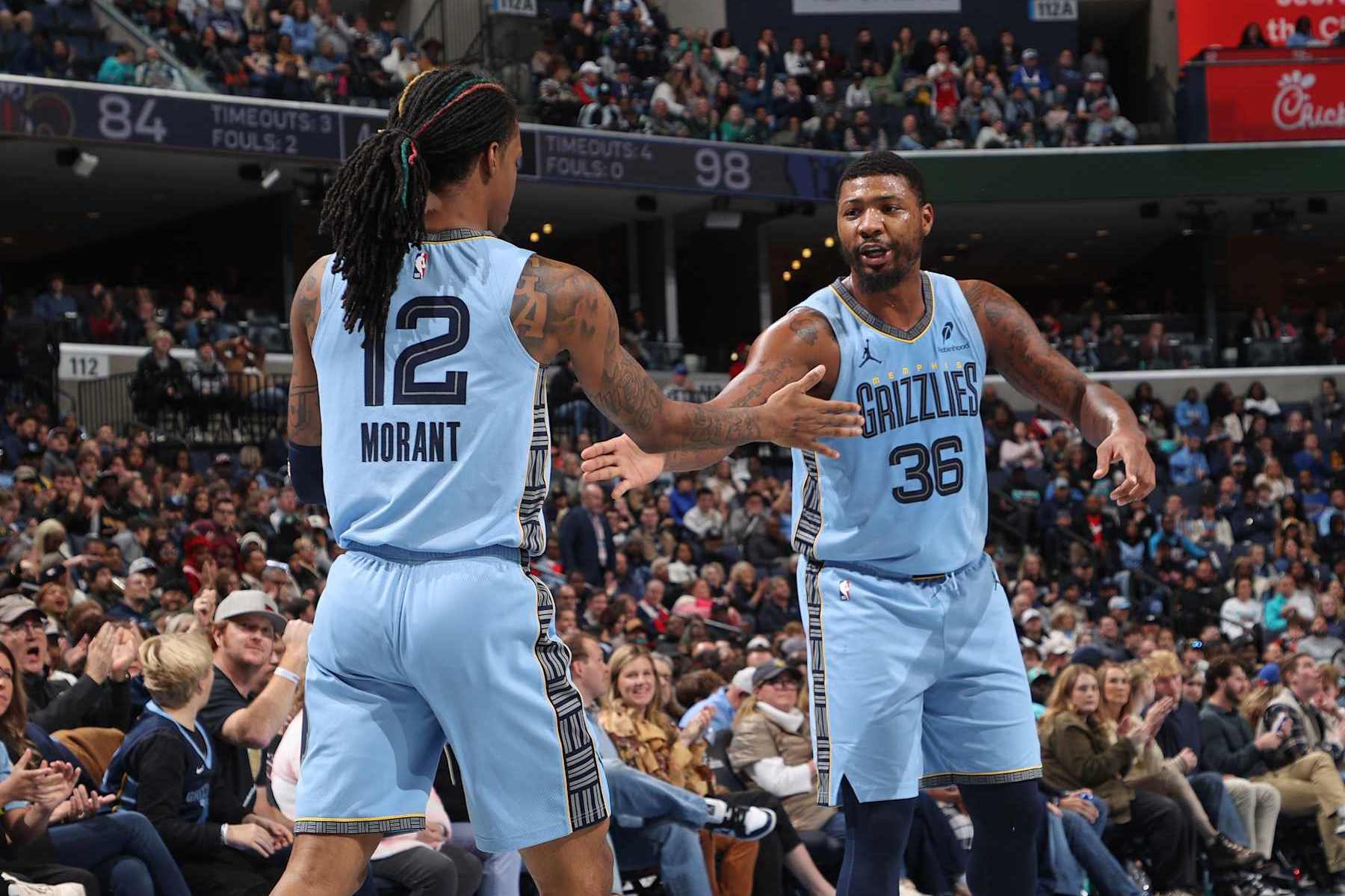
- John Konchar
- Marcus Smart
- Vince Williams Jr.
Pretty much everyone and their second cousin's neighbor's accountant understands that the Memphis Grizzlies are unlikely to go even semi-nuclear at the deadline. That isn't their style, and the sub-$2 million in breathing room beneath the luxury tax, which they definitely won't pay, cramps visions of midseason grandeur.
Konchar and the (still injured) Smart are must-include salary-matchers if the Grizzlies break character. Luke Kennard's $9.3 million expiring salary has more value and certainly isn't untouchable, but he is playing a valuable role and also has veto rights.
One of Memphis' non-Zach Edey prospects also needs to make the cut. The Grizzlies aren't a team that usually tosses out a ton of first-round equity, and any deal of consequence featuring Konchar or Smart may require more than minimal draft compensation.
Williams wins out. He has appeared in just three games this season, but he is under cost control for two more years, has shown three-and-D-plus-playmaking bandwidth and is more expendable following the emergences of Scotty Pippen Jr. and Jaylen Wells as well as the return of GG Jackson II.
Miami Heat
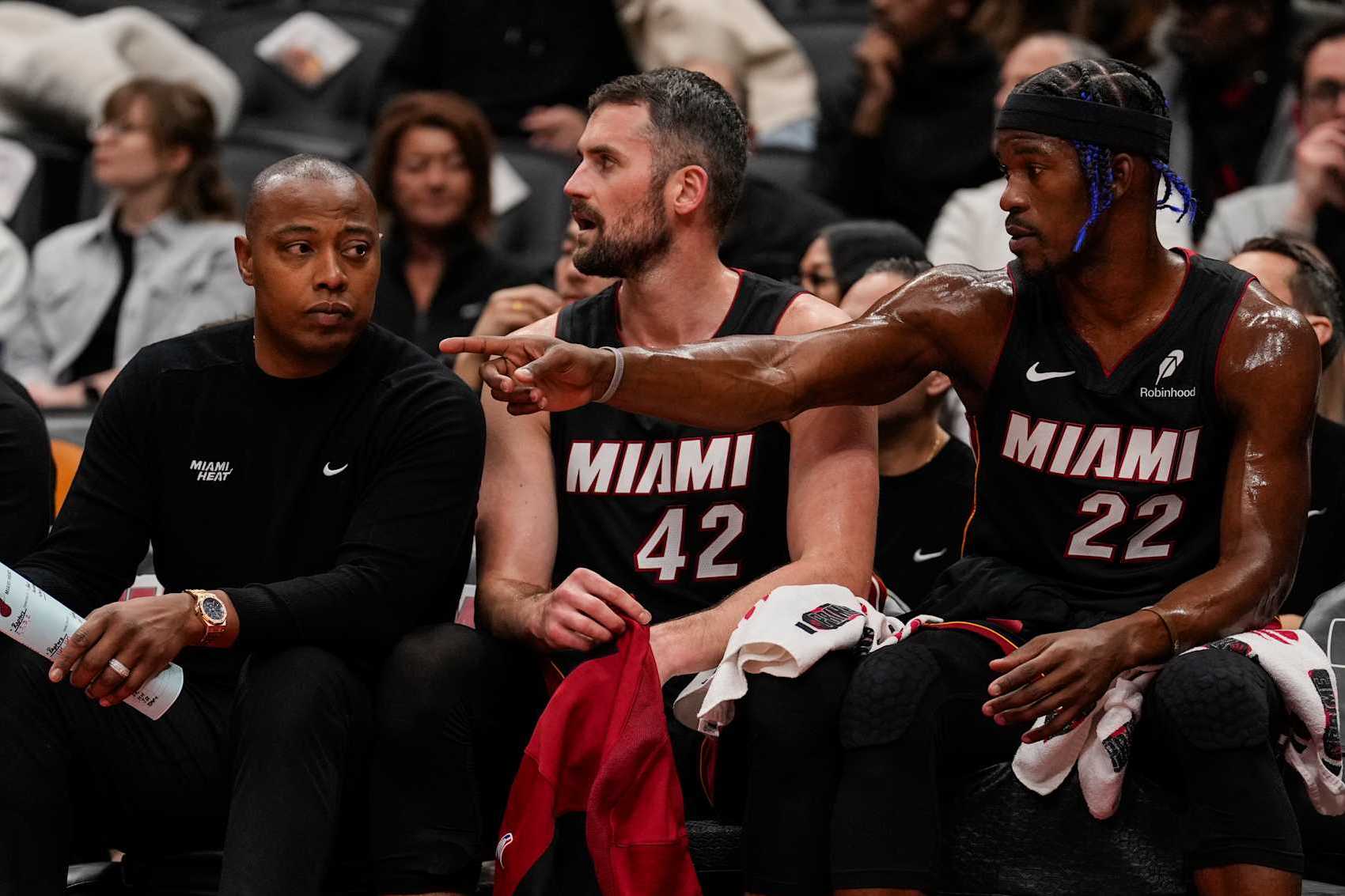
- Jimmy Butler
- Josh Richardson
- Kevin Love
Butler is totally getting traded now that his situation with the Miami Heat has gone from aggressively hopeless to comically toxic. Shout-out to South Florida dysfunction for making this easy.
Things get prickly after Butler. Miami's other trade candidates will be influenced by who it returns in that inevitable blockbuster—and who else might need to go out.
Richardson "wins" second-place billing. Calf and heel issues have sidelined him for much of this season, and his minimum salary can be sent anywhere, making him a prime trade candidate if the Heat need more than one open roster spot.
Similar logic can apply to Alec Burks. But Love is 1) seemingly #TeamJimmy and 2) has no path to regular playing time with Bam Adebayo, Nikola Jović and Kel'el Ware all in front of him. Miami may also want to hang onto Burks in the event it needs contingency ball-handlers following Butler's exit.
Milwaukee Bucks
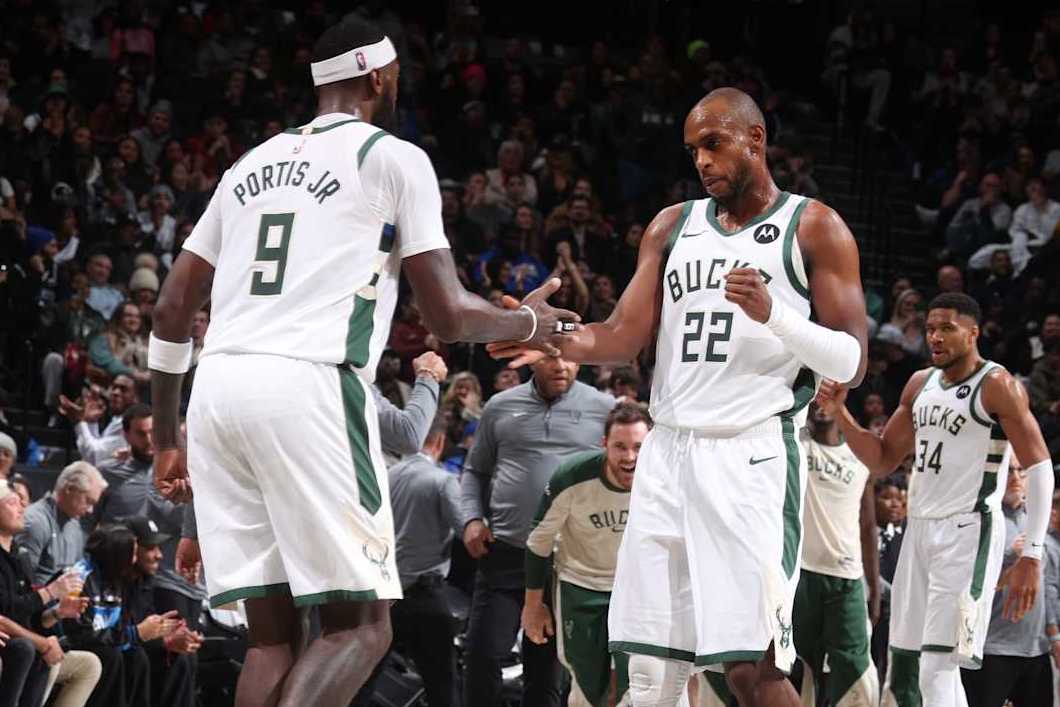
- Pat Connaughton
- Bobby Portis
- Delon Wright
Figuring out how to move Connaughton and saving the $6.5 million necessary to slide out of the second apron will remain at the top of the Milwaukee Bucks' to-do list. Whether they can maneuver it independent of a larger trade is an entirely other matter.
Connaughton is owed $9.4 million next season (player option). Is Milwaukee's lone available second-rounder (2031) enough to grease the wheels of a trade? If not, it's likely looking at splashier scenarios that involve more players and/or entail including its 2031 first-rounder.
Enter Portis. His $12.6 million salary can be treated as expiring money by other teams if they believe he'll decline his $13.4 million player option for next season, and the Bucks could use a more athletic defensive presence in their backup-frontcourt rotation.
I can't bring myself to include Middleton. His availability seems exclusive to the Jimmy Butler sweepstakes. Paint me all shades of surprised if he's moved to rope in Bradley Beal or Zach LaVine. Wright earns the nod instead, as a minimum salary Milwaukee can send out to eke out tax savings and, potentially, a roster spot.
Minnesota Timberwolves
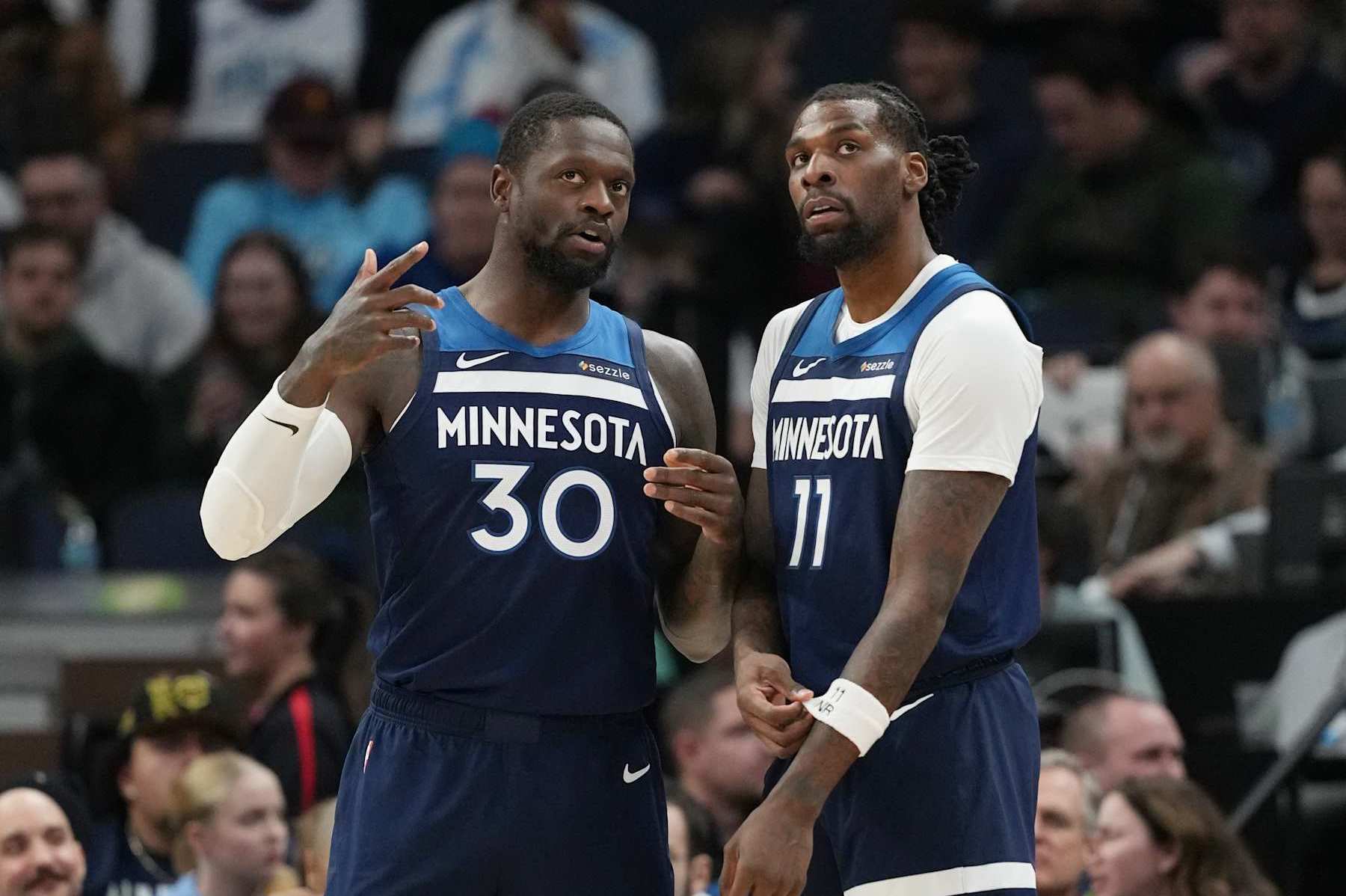
- Joe Ingles
- Luka Garza (implicit no-trade)
- Julius Randle
On the one hand, few teams seem less likely to do anything at the trade deadline than the Minnesota Timberwolves. Second-apron realities are immensely restrictive, and for all their synergistic warts, they will be hard-pressed to upgrade the top-eight spots in their rotation if you think Donte DiVincenzo's left toe sprain won't sideline him until kingdom come.
On the other hand, yours truly will believe team governor (for now) Glen Taylor foots a $90-plus-million luxury-tax bill when we see it. At the very least, the Timberwolves seem destined to shop around for minimum-contract dumping grounds to save something.
More seismic scenarios are in play if Minnesota attaches Detroit's 2025 first-rounder (top-13 protection) to Randle. Ditto if the front office sees an opportunity to upgrade from Mike Conley (unlikely) or decides to cut ties with Naz Reid ahead of his 2025-26 player option (extremely unlikely).
New Orleans Pelicans
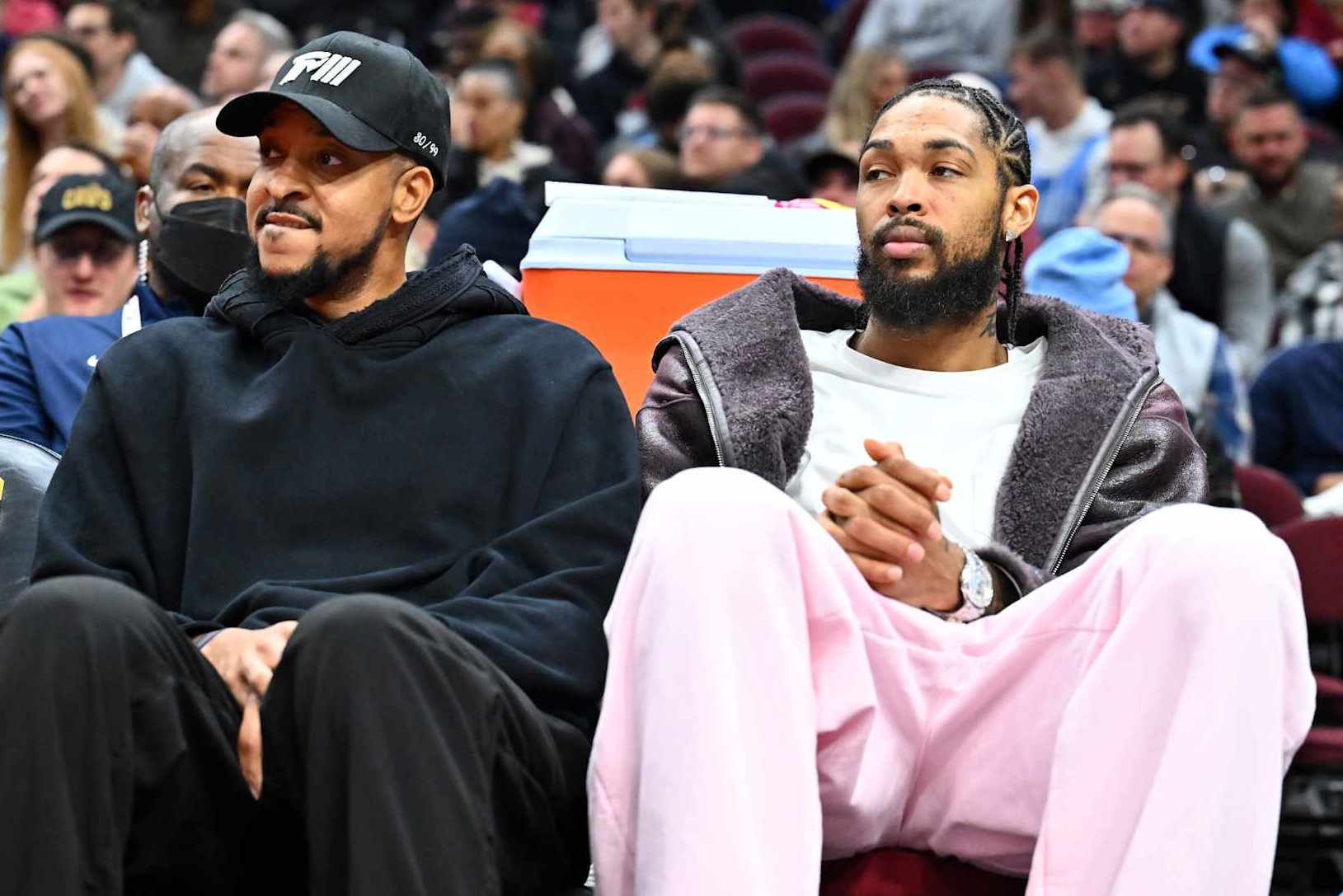
- Javonte Green
- Daniel Theis
- Brandon Ingram
Ingram vaults to the top of this list if you believe the New Orleans Pelicans are approaching take-anything-for-him territory. They're probably not.
While he can leave for nothing this summer, only the Brooklyn Nets are guaranteed to have a ton of cap space. New Orleans seems more likely to roll the dice on retaining him at a team-friendly number or facilitating a sign-and-trade rather than making a decision under duress and when Ingram hasn't taken the floor since Dec. 7.
CJ McCollum belongs here if you think the Pelicans can relocate his salary—$33.3 million this season, $30.7 million next year—without needing any sweeteners. That, again, seems unlikely.
Veering out of the luxury tax is, as ever, the Pelicans' M.O. That thrusts Green and Theis to the top. Both are on expiring minimums, and getting them off the books just yanks New Orleans out of the tax. Jeremiah Robinson-Earl is a viable alternative for the same reason, but Green and Theis should have stronger markets.
New York Knicks
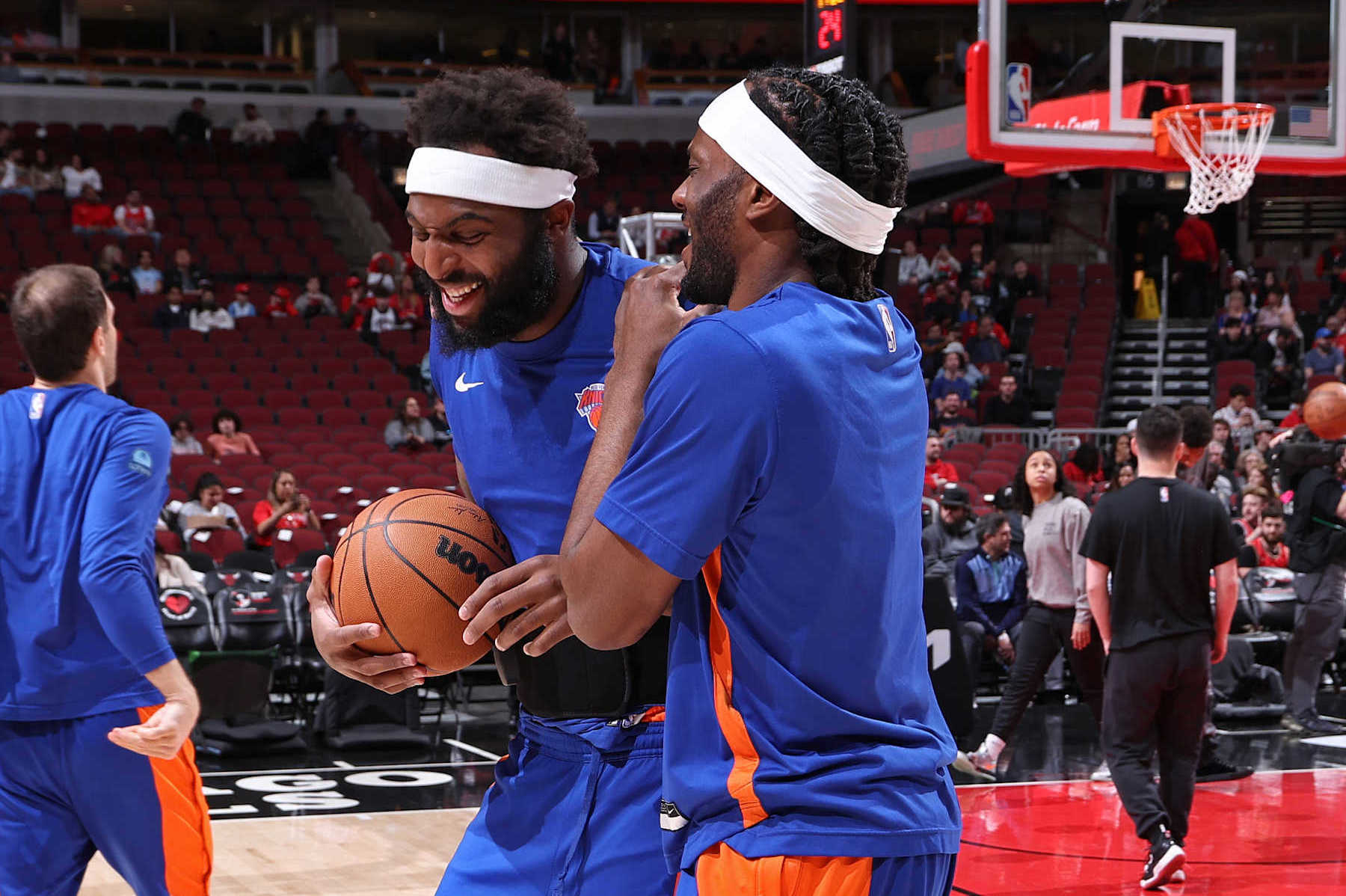
- Jericho Sims
- Mitchell Robinson
- Precious Achiuwa
Robinson would be an easy No. 1 for the New York Knicks if he was healthy. He's not.
Ankle issues have sidelined him all season. His contract—which pays him $14.3 million this year, and $13 million in 2025-26—remains the vessel through which New York can make material changes. But that's harder to do when you're bereft of first-round equity and flipping him at the nadir of his value.
Sending out Sims' minimum to increase wiggle room beneath the second apron ($535,000) in advance of buyout opportunities could be the organizational default. New York is more inclined to roll with Achiuwa off the bench, can slide Ariel Hukporti into the starting five if Karl-Anthony Towns misses time and should eventually get Robinson back.
Beyond that, the Knicks almost have to explore deals anchored by Robinson's and/or Achiuwa's salaries. Whether that canvassing actually manifests into anything is a different story.
Oklahoma City Thunder

- Ousmane Dieng
- Dillon Jones
- Aaron Wiggins
Championship contenders rarely have so much runway beneath the luxury tax. As things stand, the Oklahoma City Thunder could send out Dieng's $5 million and take back a player making around $10.2 million. That flexibility on top of their armory of draft picks positions them to do so much without displacing major contributors.
Rookie Dillon Jones fits that mold as well. Attach him to Dieng, and the Thunder can accept over $15 million in returning salary. Surrendering cost-controlled talent such as Jones isn't Oklahoma City's style, but its inbound pick commitments more than offset the difference.
Settling on a third name gets dicey. Both Kenrich Williams and Jaylin Williams seem too important given how much time has been missed by Isaiah Hartenstein and Chet Holmgren.
That (realistically) leaves Wiggins and Isaiah Joe. The former has a higher individual ceiling. Other teams will feel the same. And since any move the Thunder make involving one or the other would tilt toward substantial, that difference matters.
Orlando Magic
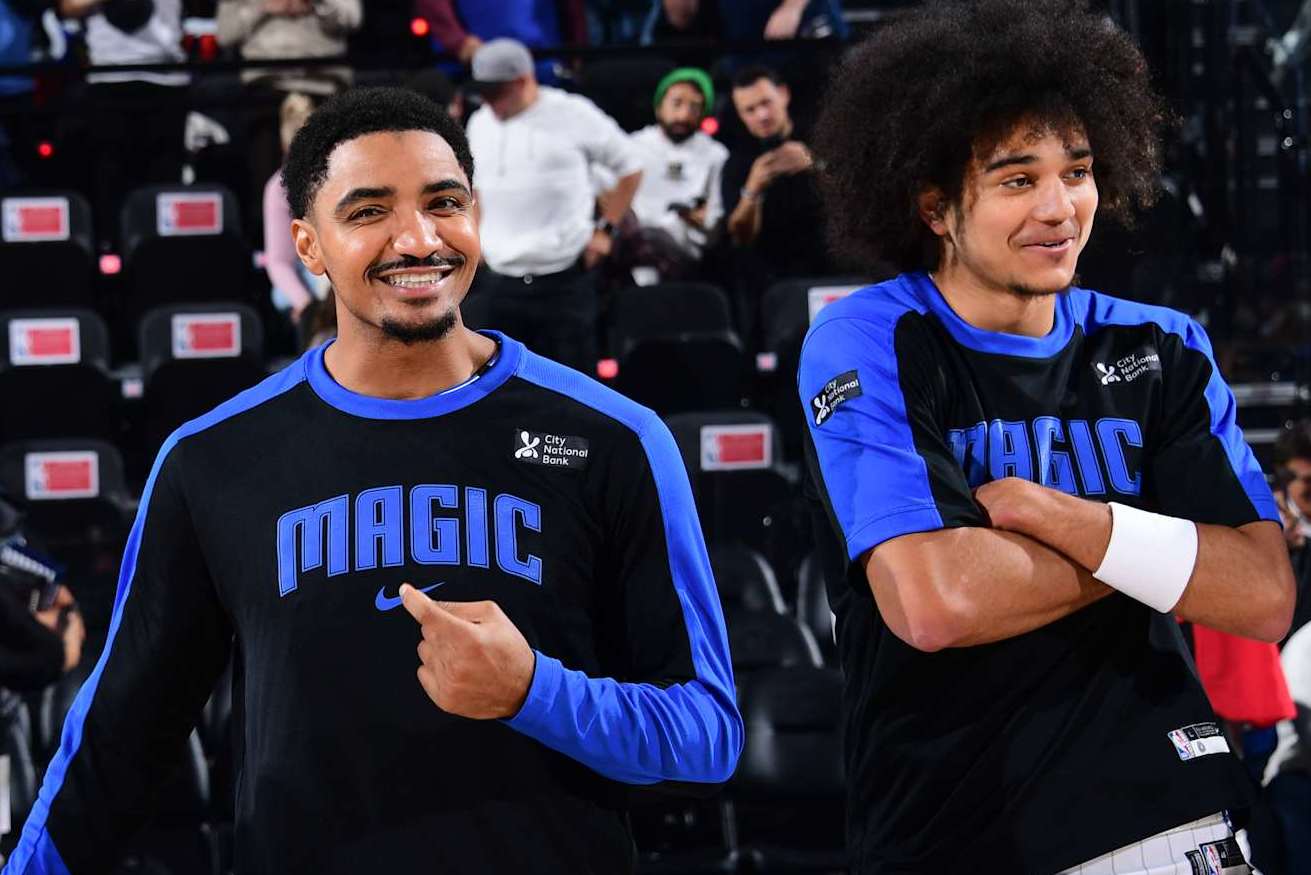
- Gary Harris
- Cole Anthony
- Anthony Black
Having both Paolo Banchero and Franz Wagner back in the rotation could relegate the Orlando Magic to wait-and-see mode. At the same time, it may also leave them with fewer excuses. Their two most important players are back, and it's unlikely they entirely resolve offensive issues years in the making.
Orlando is teeming with movable contracts if it's bent on making an upgrade. But Moritz Wagner is out for the year, and Jonathan Isaac's 2024-25 price point ($25 million) has limited value unless the Magic are going for the home run acquisition.
This makes Harris a no-brainer inclusion. He's making $7.5 million this year, with a team option for the same amount next season. Anthony's role has expanded from his earlier rock-bottom usage, but his $12.9 million salary and one more guaranteed year at $13.1 million is ideally priced for trade-matching. Orlando would also presumably target someone who diminishes its dependence on him.
Finishing off the list with a youngster makes the most sense. The Magic have the first-round picks to work around including more bodies. But Black's combination of defensive upside and pay grade ($7.6 million) renders him the logical choice for sellers demanding prospects.
Philadelphia 76ers
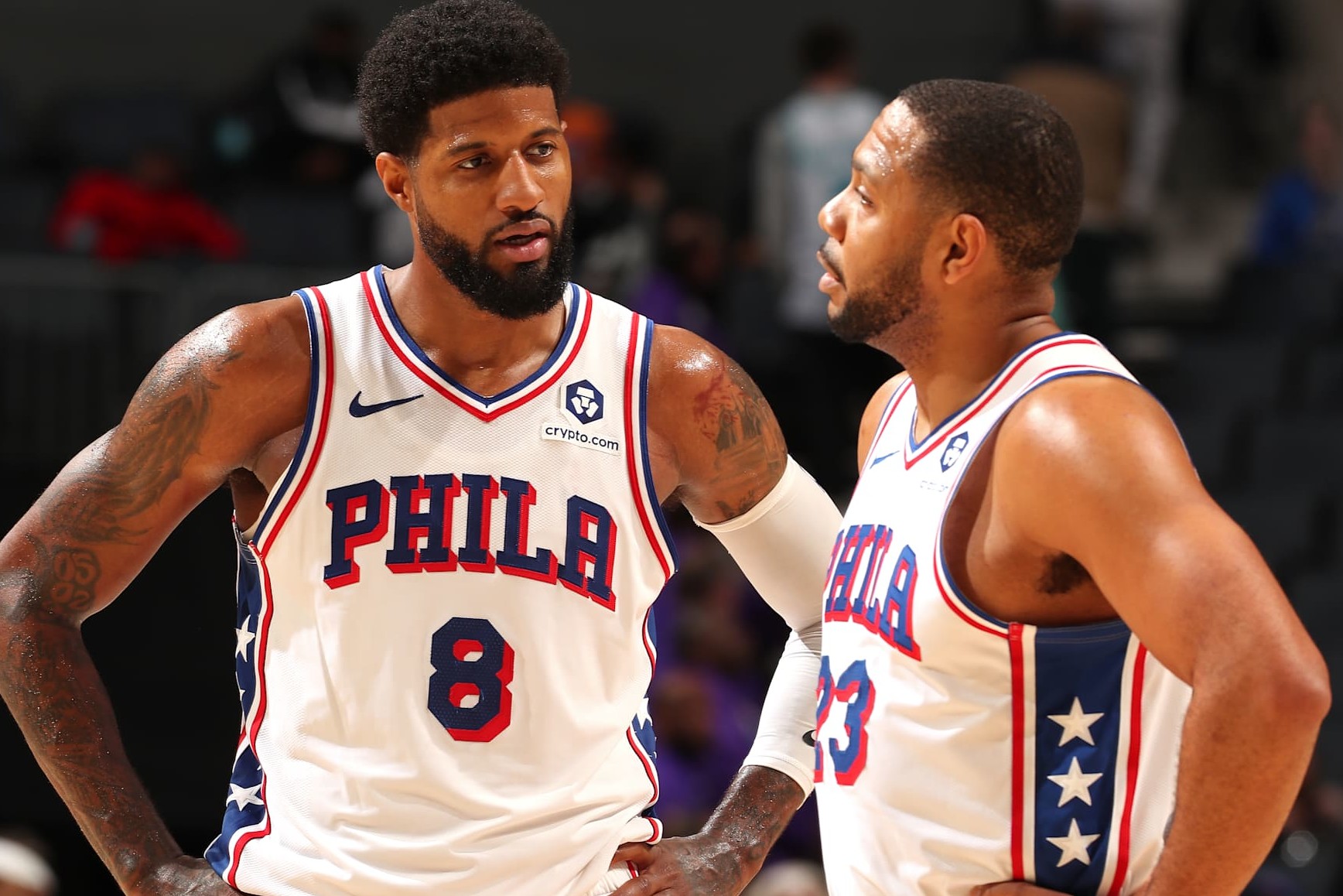
- KJ Martin
- Eric Gordon
- Reggie Jackson
The Philadelphia 76ers once upon a time profiled as the most obvious buyers in the business. Injuries and general underperforming have since turned them into a wild card.
Will they still buy? Stand pat and regroup over the offseason? Is there a world in which they punt on this season and shed the $10.3 million it would take to exit the luxury tax?
Martin's $8 million salary (and non-guaranteed money in 2025-26) will feature prominently regardless of how the Sixers operate. The final two names on this list suggest Philly's priority will be cutting—or entirely sidestepping—luxury-tax bills without busting up the core.
Gordon and Jackson are both on minimums and can be sent anywhere. The same goes for Kyle Lowry, though he has an implicit no-trade clause. Philly doesn't have Bird rights on Guerschon Yabusele, but it's unlikely to get enough seconds to part with him given the scope of his role.
Phoenix Suns
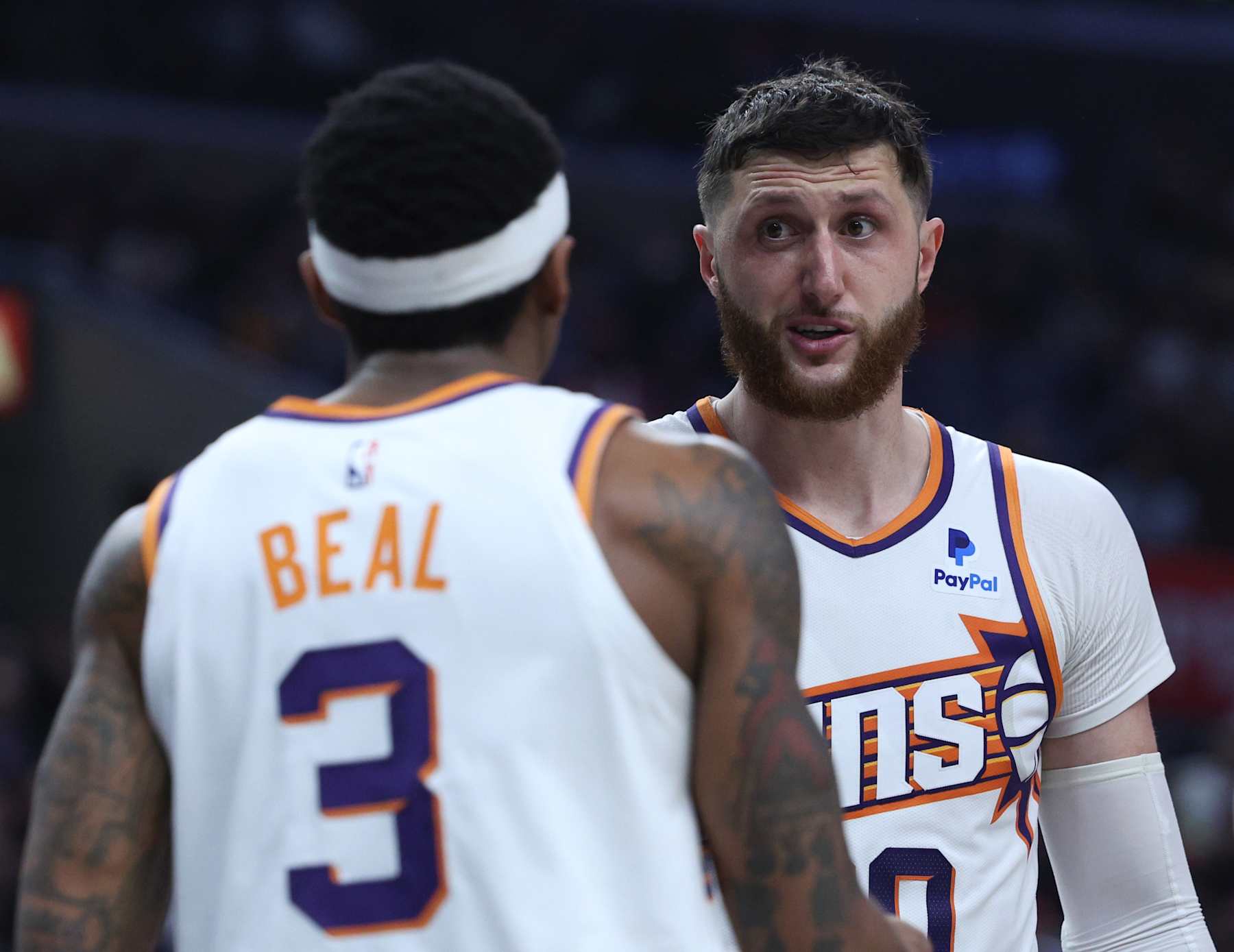
- Jusuf Nurkić
- Bradley Beal (no-trade clause)
- Grayson Allen
The sheer volume of Beal rumors gives him a No. 1 case even with the no-trade clause. But his veto power, specific relocation preferences and the seemingly Jimmy Butler-or-bust of it all demand that we hedge.
Nurkić's first-overall case is stronger than ever. He has vanished from the rotation and is reportedly not on good or even speaking terms with head coach Mike Budenholzer. The Phoenix Suns also just broke up their 2031 first-rounder into three less-favorable picks in 2025 (likely. No. 29 or 30), 2027 and 2029, making it more likely they use one or two to facilitate a contract dump that doesn't net a big-time upgrade.
Hashing out the third and final slot is more subjective than the first two. I'm inclined to go with Allen. He remains an integral part of the rotation—and is shooting lights-out since Jan. 1. But unlike Beal or Nurkić, he may have enough standalone value to get the Suns a wing or big-man upgrade without exhausting their refreshed first-round stash.
Portland Trail Blazers
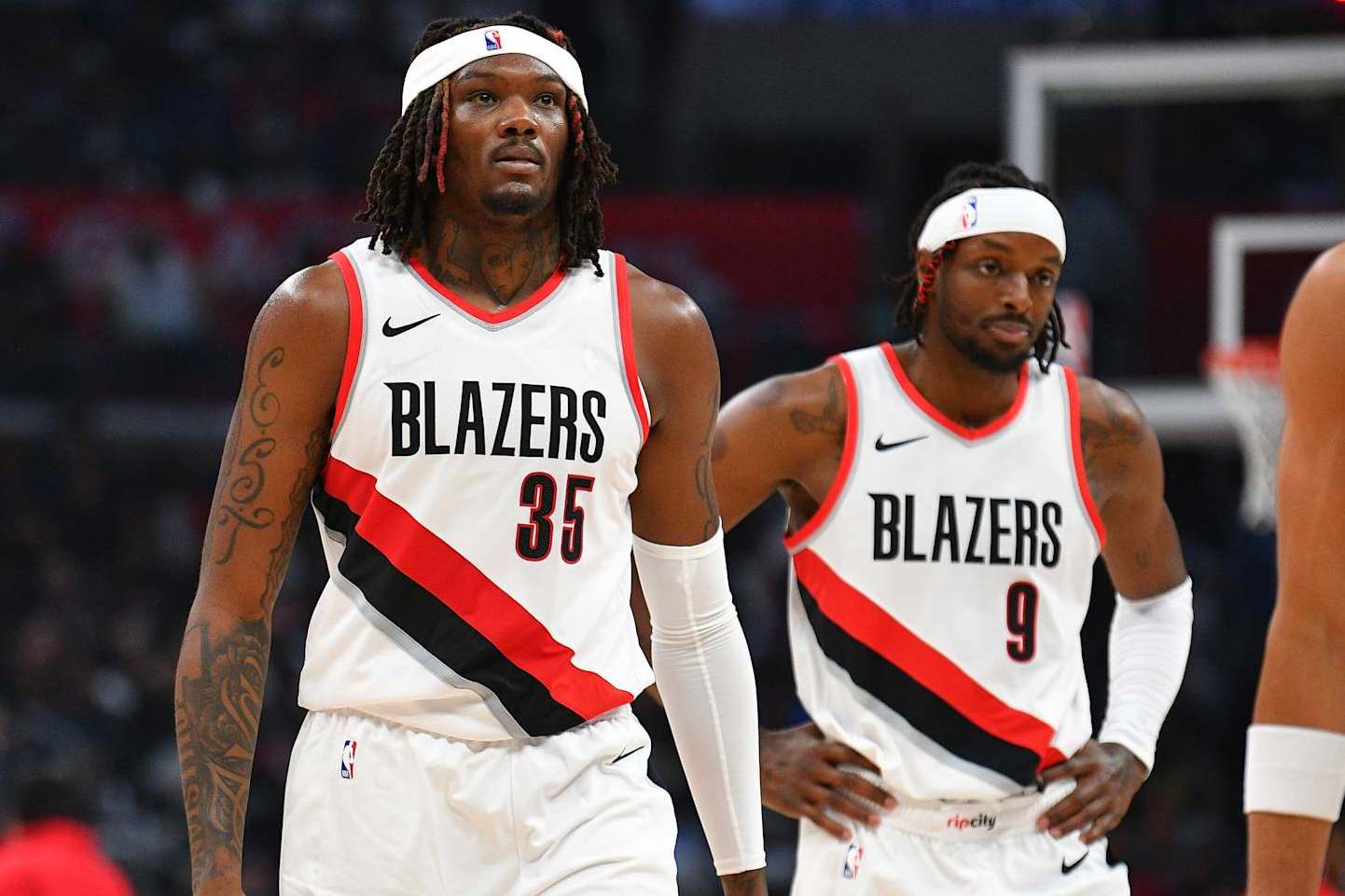
- Duop Reath
- Robert Williams III
- Jerami Grant
Grant should be atop the list. But his on-court and contractual value has cratered, it isn't clear whether the front office will accept its whiff and move him for pennies on the dollar, and the Portland Trail Blazers' proximity to the tax ($3.7 million away) limits how much money they take on as part of any deal.
He nevertheless belongs here, because the Blazers have so many more intriguing perimeter alternatives. But he can't be No. 1.
Reath is the easier sell. He is barely a part of the rotation and making peanuts ($2 million). His potential as a rim-protecting floor-spacer is overstated, but the number of teams in need of playable frontcourt depth drums up the value of his cheapo salary.
Williams gets the No. 1 spot if you could count on his availability or Portland accepting second-round compensation for his services. Neither is assured, but the team's surfeit of bigs makes him an easy top-three inclusion.
Anfernee Simons is the hardest cut. He will have the strongest market of anyone (available) on the team. But Portland isn't yet in position to dispense of his floor-spacing unless he's bringing back peak value.
Sacramento Kings
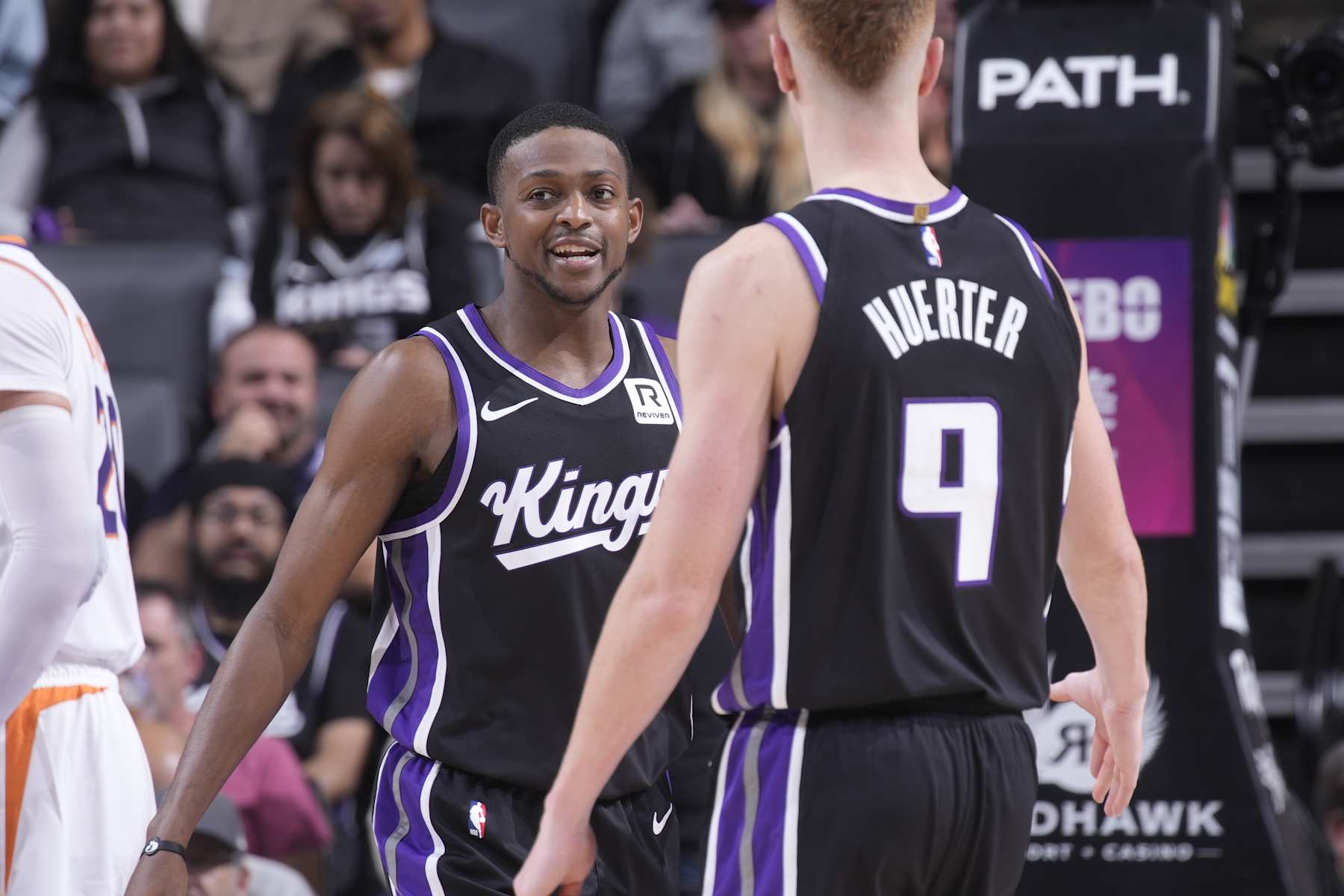
- De'Aaron Fox
- Kevin Huerter
- Trey Lyles
The Sacramento Kings are officially open to a potential De'Aaron Fox trade, according to multiple reports—all while Fox and his team are the Klutch Sports playbook to a T. The San Antonio Spurs are apparently his desired destination.
With so little time before the Feb. 6 deadline, there's a chance no deal materializes. A competent organization won't rush the process just because an official preference has been given. Then again, these are still the #Kangz, apparently, so...
Regardless, Fox belongs at the top of the list. His future now impacts all other business. The "Kevin Huerter plus a first and maybe Trey Lyles" special can't take center stage when no worse than your second-best player is on his way out now, this summer or (much less likely) during 2026 free agency.
San Antonio Spurs
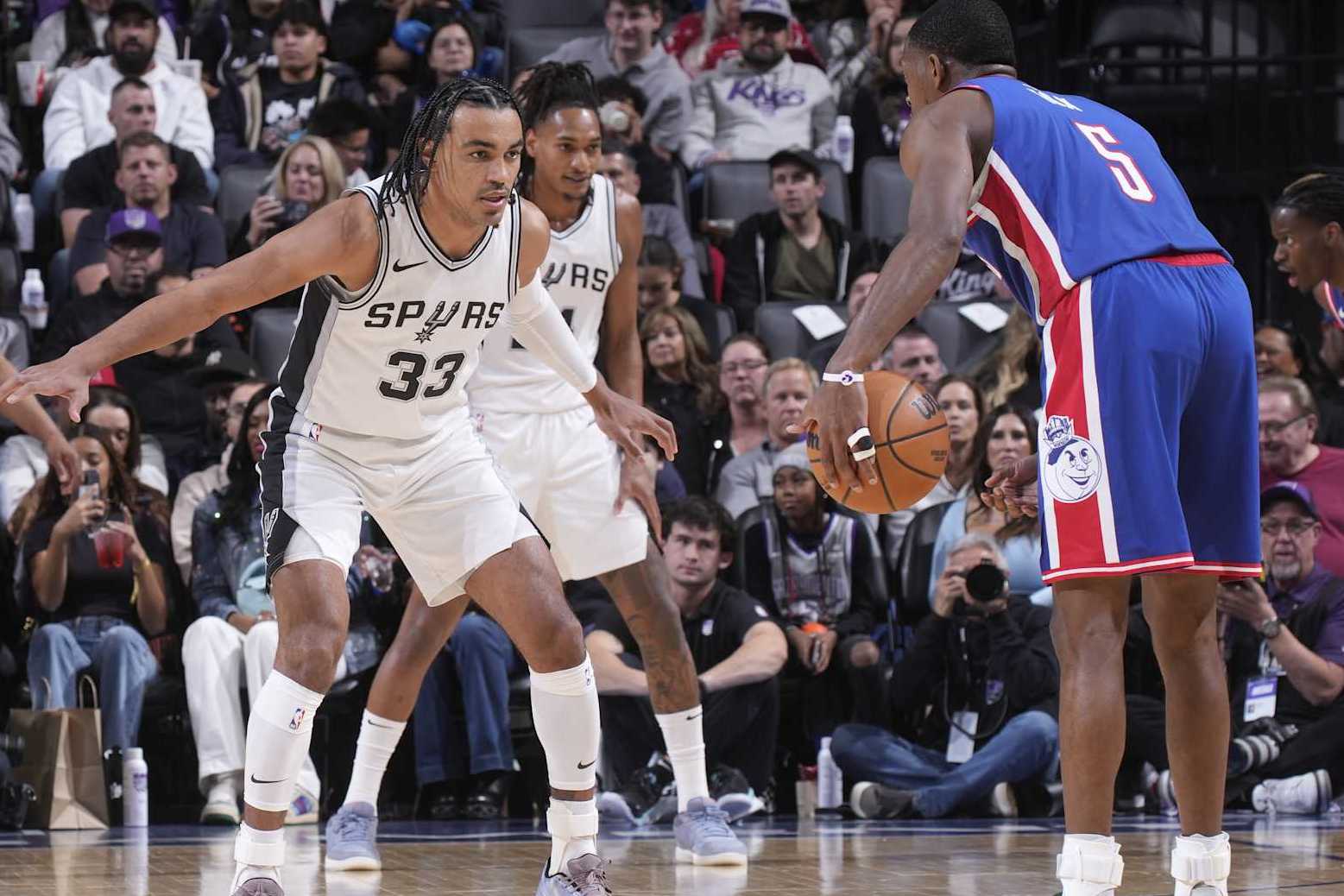
- Zach Collins
- Malaki Branham
- Tre Jones
Congratulations to the San Antonio Spurs for being named De'Aaron Fox's preferred landing spot.
Topping this list changes the complexion of their trade-candidate big board but doesn't completely reinvent it. If the Spurs do anything substantial midseason, they'll be more inclined to leverage dispensable salaries and first-round picks rather than potentially core prospects.
Jeremy Sochan may be an exception in the event San Antonio gets serious about a Fox pursuit. But its historically conservative approach suggests we stick to broader-scale possibilities.
Collins' salary can be an instrumental anchor no matter what the Spurs do. Teams won't be thrilled at the $18.1 million he's owed next season. San Antonio can soften the blow by taking back up to $24.4 million for his $16.7 million 2024-25 salary alone.
Branham or Blake Wesley should be included in any deal as a second-draft sweetener. Branham has enjoyed higher peaks at this level, so he slides into No. 2. And Jones' expiring salary nabs the third spot to better account for Fox-to-San Antonio permutations.
Toronto Raptors
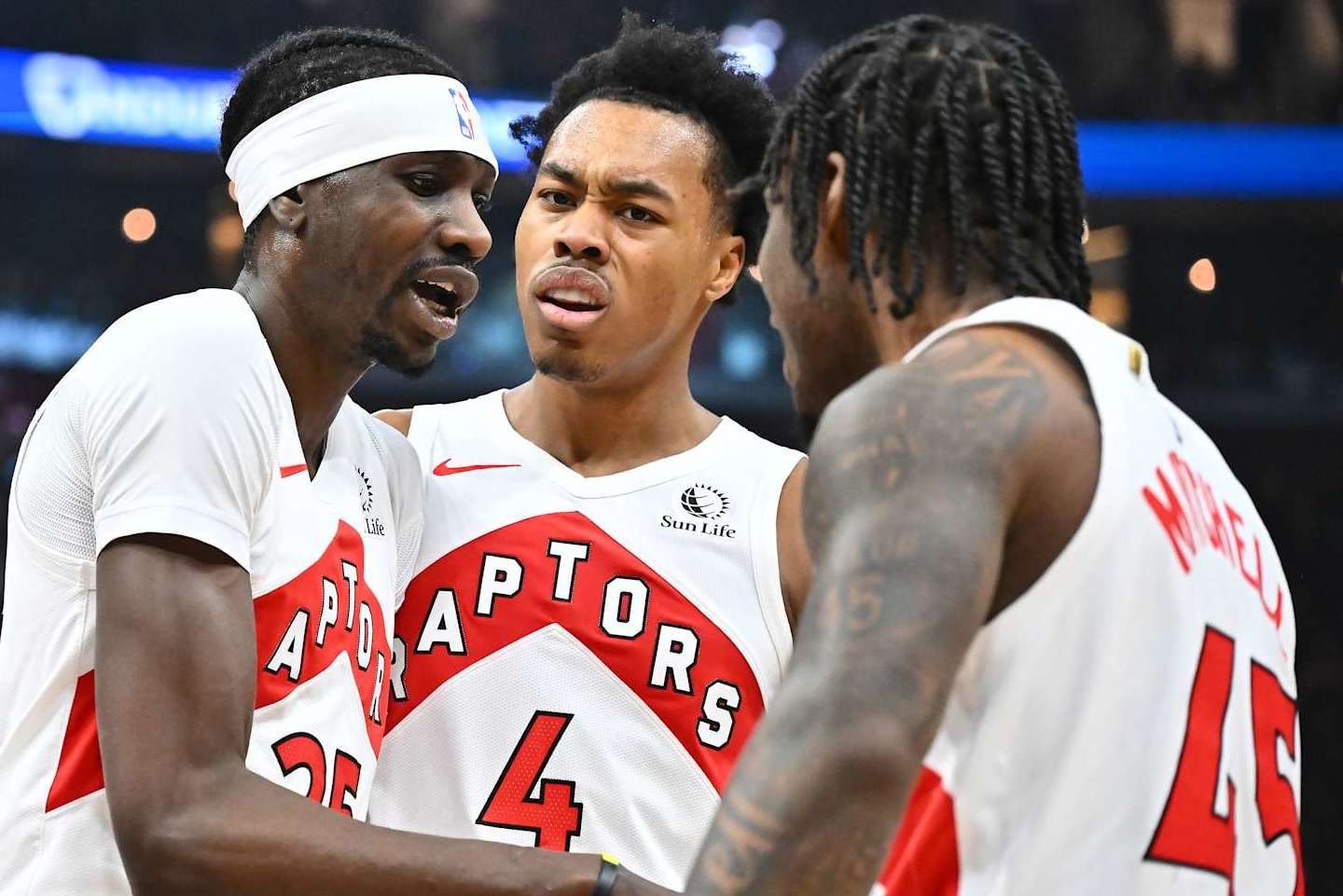
- Bruce Brown
- Chris Boucher
- Davion Mitchell
The Toronto Raptors appear determined to roll over Brown's $23 million salary slot into next season or beyond. That rings a little hollow when so few teams seem prepared to underwrite huge contract dumps. It takes on new meaning when Toronto is willing to expand its scope to include bigger names who may require outgoing compensation—such as Brandon Ingram, per The Stein Line's Marc Stein.
Boucher gets looped into the "bigs who can log rotation minutes and shouldn't cost serious draft equity" bucket. The market for his services should be even broader when he's canning over 50 percent of his 4.3 three-point attempts per game since the middle of December.
Kelly Olynyk or Jakob Poeltl will round out other lists, but Mitchell's impending restricted free agency wins out.
Even though his market won't break the bank, are the Raptors really going to pay him? Maybe if he keeps hitting threes. Otherwise, they should look to scoop up second-round compensation while clearing the deck for more Jamal Shead and Ja'Kobe Walter developmental reps.
Utah Jazz
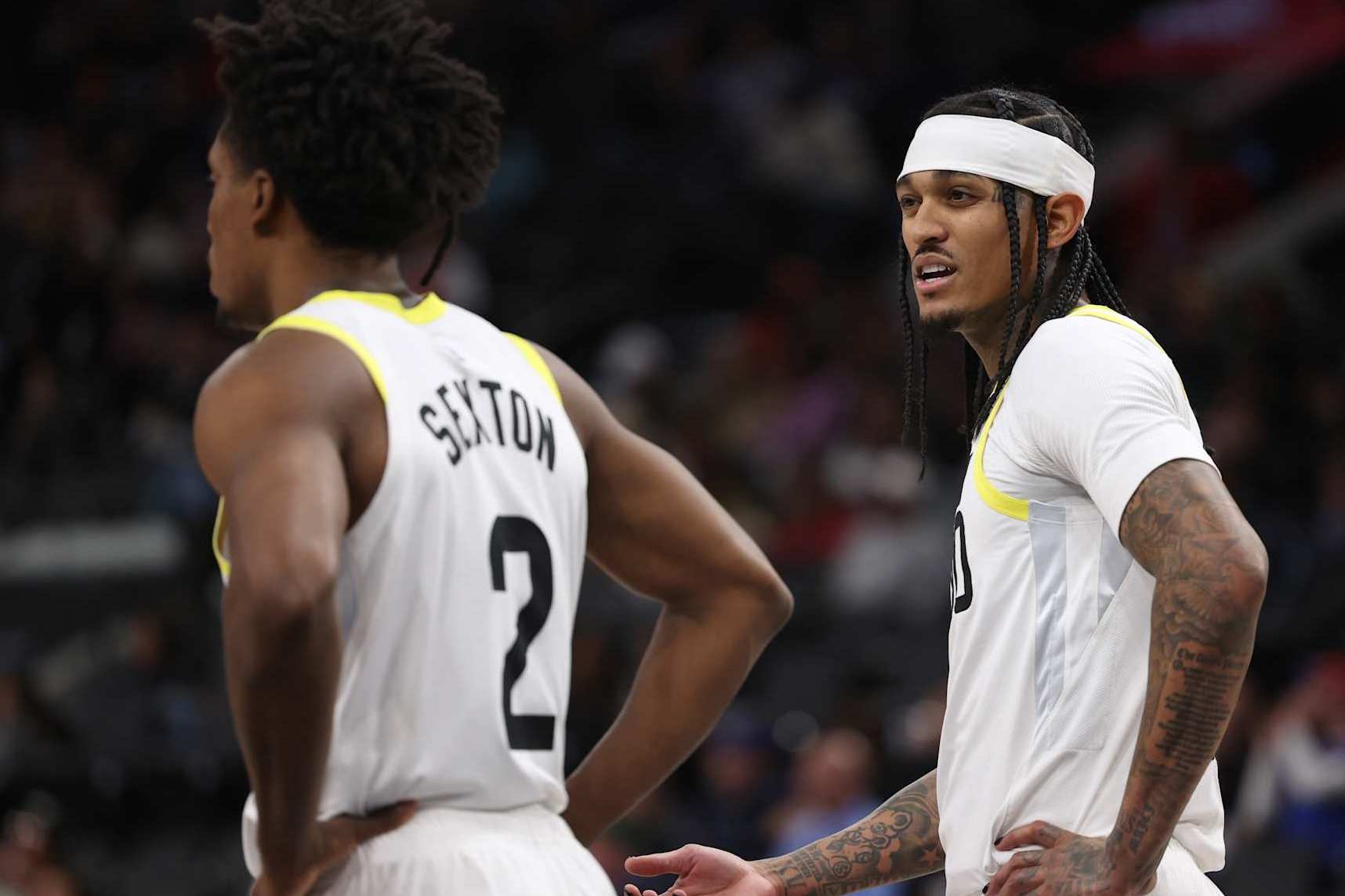
- Drew Eubanks
- Jordan Clarkson
- Collin Sexton
Eubanks' elevation to the top of this list is a product of the trade landscape.
Non-star bigs are needed in ample supply, the Utah Jazz don't seem keen on actually moving Walker Kessler, and while John Collins is having a quality season, his $26.7 million salary for this year and next (player option) winnows down the list of prospective landing spots.
Eubanks' salary is cheap enough for him to go just about anywhere, and moving him for second-round compensation shouldn't impact the bottom-line performance.
Sexton will be in more demand than anyone. But the Jazz aren't hot for low-end firsts. They just traded away three of them for a bite at Phoenix's 2031 pick. The 11th hour can always yield an aggressive suitor. Failing that, Utah needn't shop him with urgency.
Clarkson seems more gettable. He is slightly cheaper and, more critically, someone the Jazz are probably cool with exchanging for second-rounders.
Washington Wizards
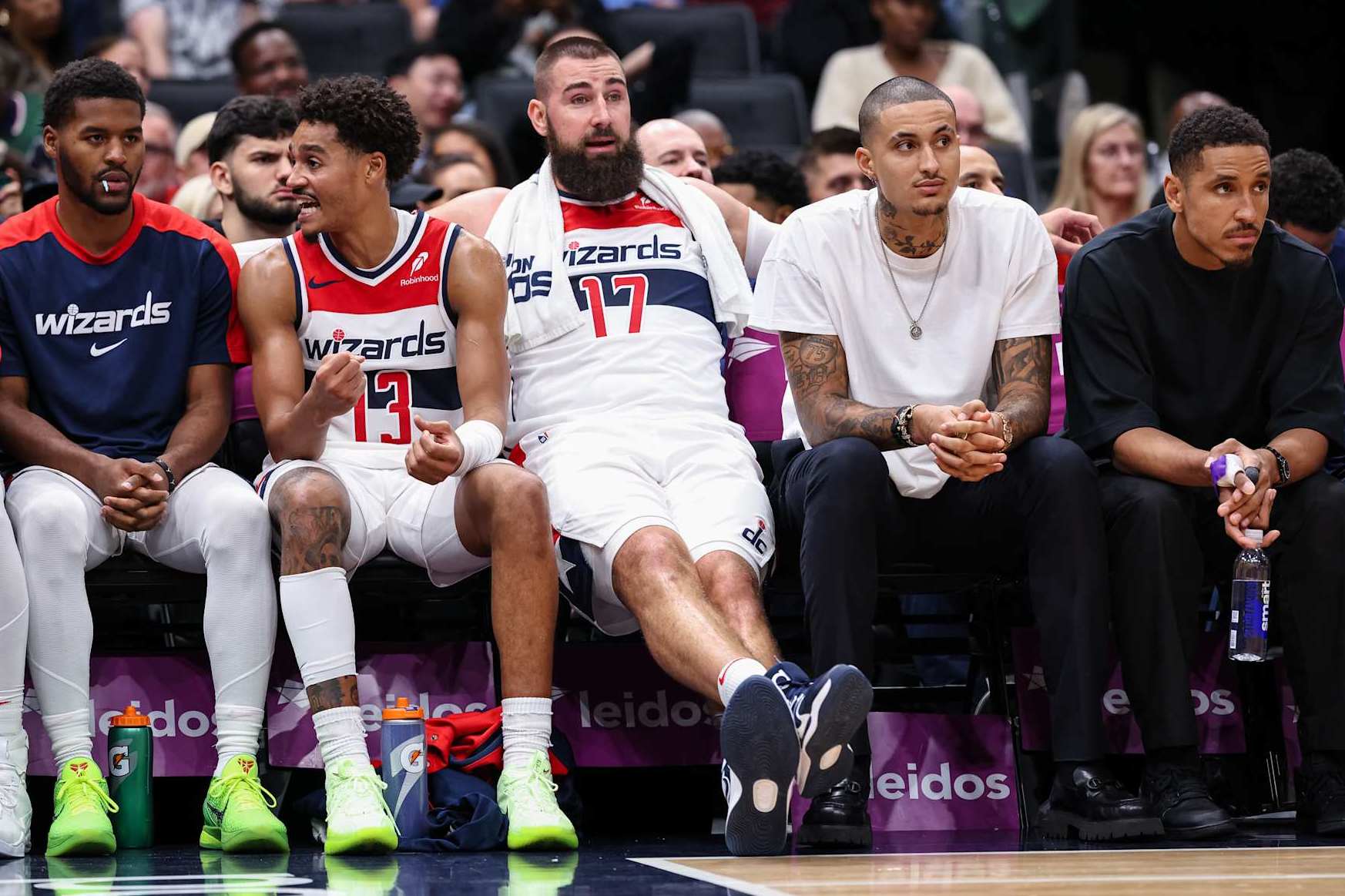
- Jonas Valančiūnas
- Malcolm Brogdon
- Kyle Kuzma
Last year's version of Kuzma would headline this season's list, but injuries and spotty play have torpedoed his value. His recent comments about being more aggressive rather than letting people develop could expedite his exit, but are the Washington Wizards prepared to ship him out without getting back more than a "blah" first, if teams even give up that much? The debatable nature of the answers prevents him from seizing No. 1
That honor belongs to Valančiūnas. Washington isn't brimming with rotation bigs, but Alex Sarr is quietly finding himself on offense, and we're fast approaching the official start of Tristan Vukčević's season. Bake in the number of squads browsing the market for bigs who don't cost first-rounders, and Valančiūnas is the rightful No. 1.
Brogdon registers as a close second. His expiring salary and offensive utility should pique plenty of interest when combined with the Wizards' likely willingness to absorb longer-term money. If he earned under $20 million, he'd have a leg up over Valančiūnas.
Dan Favale covers the NBA for Bleacher Report. Follow him on Twitter (@danfavale), and subscribe to the Hardwood Knocks podcast, co-hosted by Bleacher Report's Grant Hughes.
Unless otherwise cited, stats courtesy of NBA.com, Basketball Reference, Stathead or Cleaning the Glass. Salary information via Spotrac. Draft-pick obligations via RealGM.
